Shows
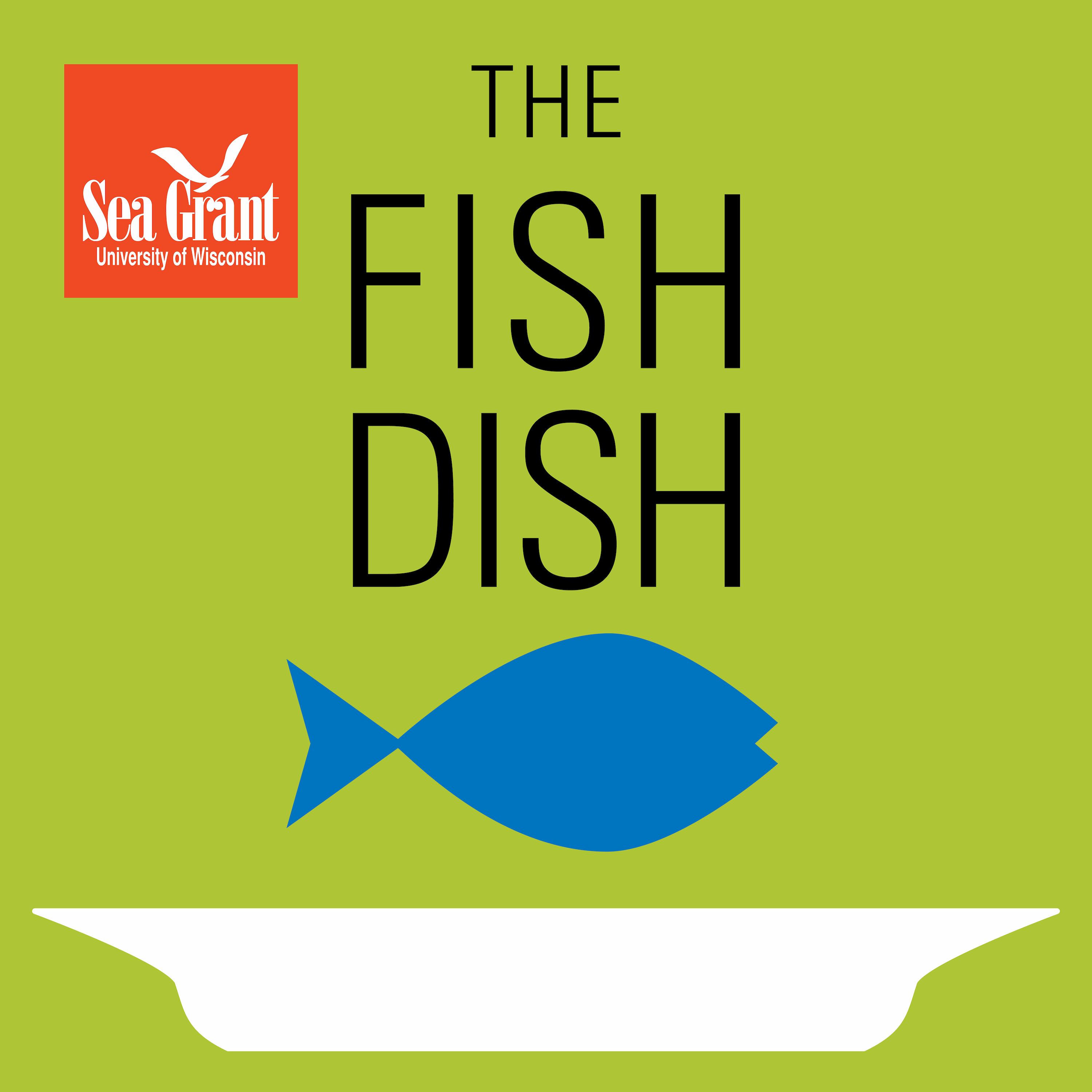 The Fish DishBlooper ReelThings are changing at The Fish Dish. Science Communicator Marie Zhuikov is retiring from Wisconsin Sea Grant. Co-host Sharon Moen will soldier on with a few more episodes thanks to help from other Sea Grant communications colleagues.As a parting gift, Marie created a blooper reel. Listeners might recognize the episodes they relate to, such as “The 100% Great Lakes Fish Initiative,” the “Northern Waters Smokehaus Cookbook”, and “Growing Atlantic Salmon in Wisconsin.”2025-03-2003 min
The Fish DishBlooper ReelThings are changing at The Fish Dish. Science Communicator Marie Zhuikov is retiring from Wisconsin Sea Grant. Co-host Sharon Moen will soldier on with a few more episodes thanks to help from other Sea Grant communications colleagues.As a parting gift, Marie created a blooper reel. Listeners might recognize the episodes they relate to, such as “The 100% Great Lakes Fish Initiative,” the “Northern Waters Smokehaus Cookbook”, and “Growing Atlantic Salmon in Wisconsin.”2025-03-2003 min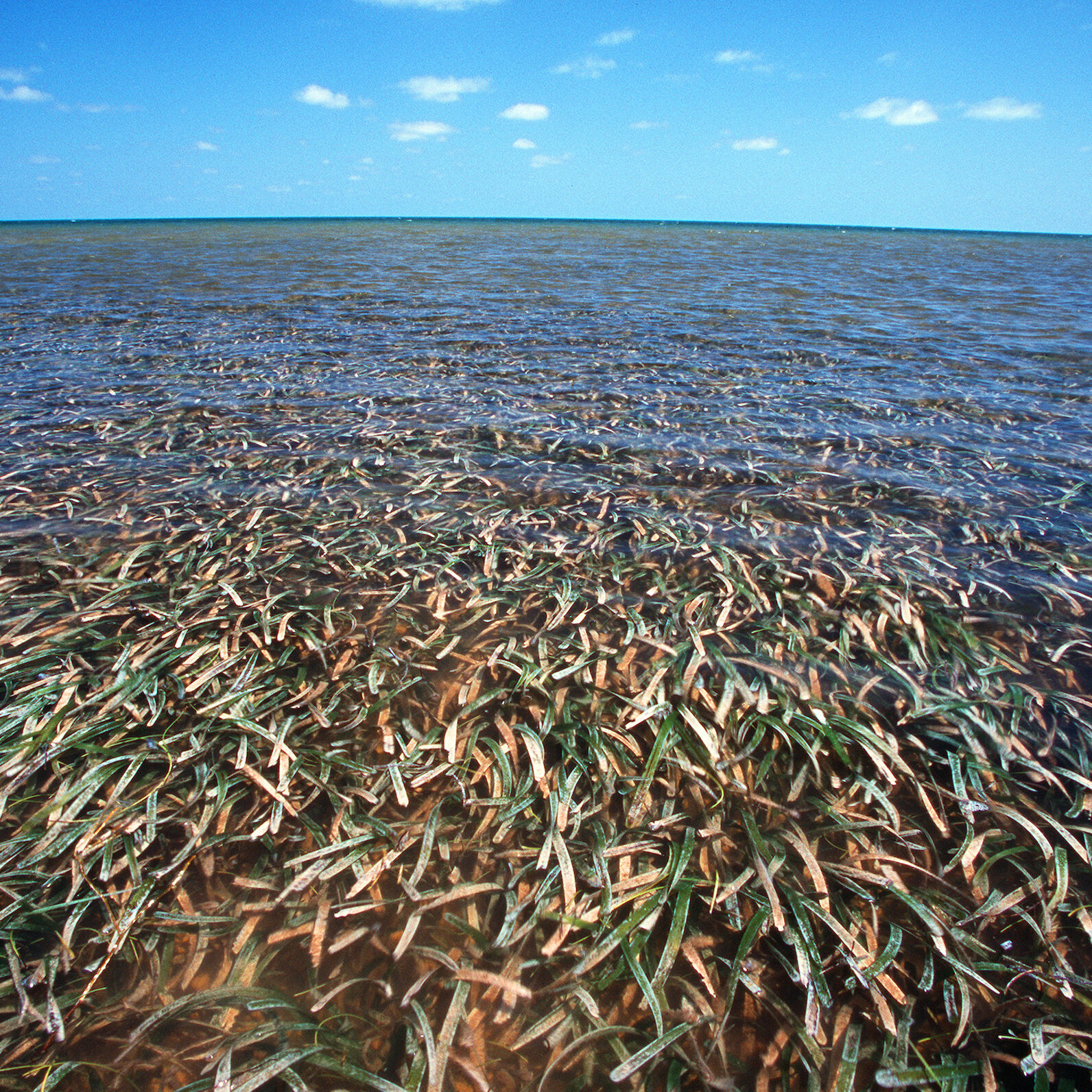 Marine Science Minute with Florida Sea GrantEpisode 49-Seagrass Safe BoatingToday on Marine Science Minute with Florida Sea Grant: Seagrass Safe Boating2025-03-0501 min
Marine Science Minute with Florida Sea GrantEpisode 49-Seagrass Safe BoatingToday on Marine Science Minute with Florida Sea Grant: Seagrass Safe Boating2025-03-0501 min Marine Science Minute with Florida Sea GrantEpisode 49-Seagrass Safe BoatingToday on Marine Science Minute with Florida Sea Grant: Seagrass Safe Boating2025-03-0501 min
Marine Science Minute with Florida Sea GrantEpisode 49-Seagrass Safe BoatingToday on Marine Science Minute with Florida Sea Grant: Seagrass Safe Boating2025-03-0501 min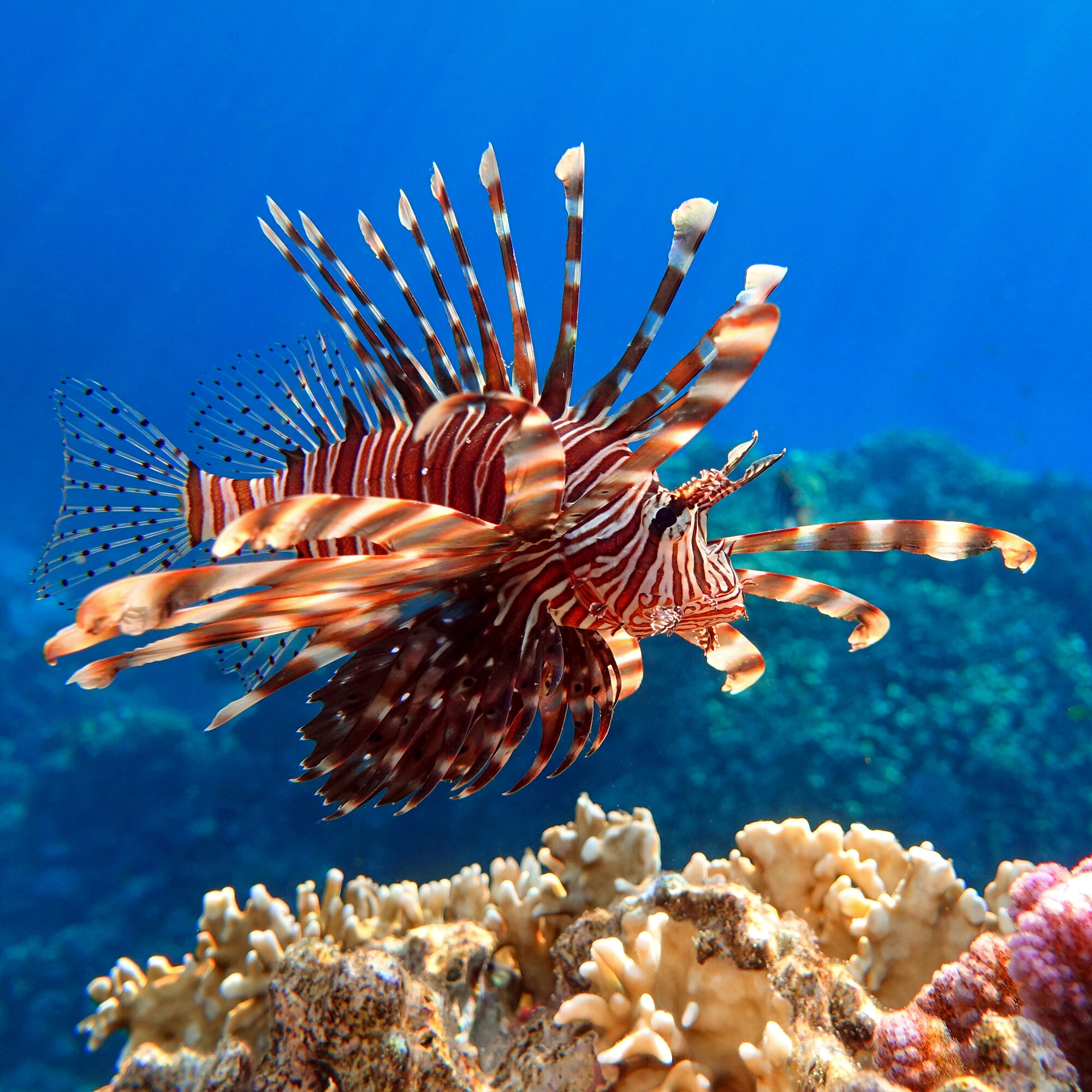 Marine Science Minute with Florida Sea GrantEpisode 48-Invasive SpeciesToday on Marine Science Minute with Florida Sea Grant: Invasive Species2025-02-2601 min
Marine Science Minute with Florida Sea GrantEpisode 48-Invasive SpeciesToday on Marine Science Minute with Florida Sea Grant: Invasive Species2025-02-2601 min Marine Science Minute with Florida Sea GrantEpisode 48-Invasive SpeciesToday on Marine Science Minute with Florida Sea Grant: Invasive Species2025-02-2601 min
Marine Science Minute with Florida Sea GrantEpisode 48-Invasive SpeciesToday on Marine Science Minute with Florida Sea Grant: Invasive Species2025-02-2601 min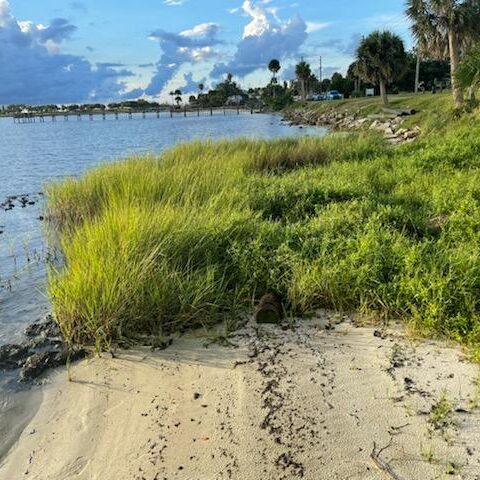 Marine Science Minute with Florida Sea GrantEpisode 47-Living ShorelinesToday on Marine Science Minute with Florida Sea Grant: Living Shorelines2025-02-1901 min
Marine Science Minute with Florida Sea GrantEpisode 47-Living ShorelinesToday on Marine Science Minute with Florida Sea Grant: Living Shorelines2025-02-1901 min Marine Science Minute with Florida Sea GrantEpisode 47-Living ShorelinesToday on Marine Science Minute with Florida Sea Grant: Living Shorelines2025-02-1901 min
Marine Science Minute with Florida Sea GrantEpisode 47-Living ShorelinesToday on Marine Science Minute with Florida Sea Grant: Living Shorelines2025-02-1901 min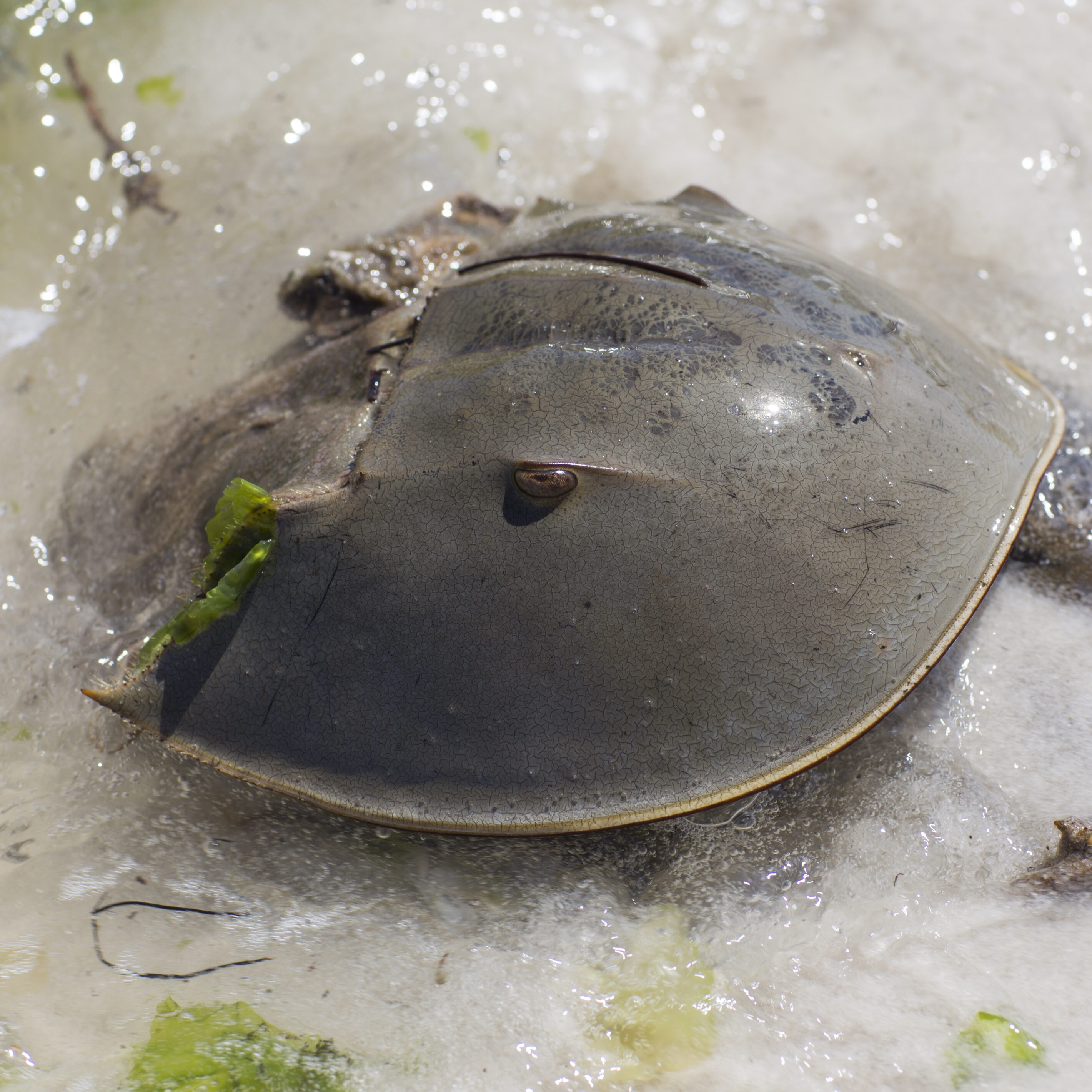 Marine Science Minute with Florida Sea GrantEpisode 46-Horseshoe CrabsToday on Marine Science Minute with Florida Sea Grant: Horseshoe Crab2025-02-1201 min
Marine Science Minute with Florida Sea GrantEpisode 46-Horseshoe CrabsToday on Marine Science Minute with Florida Sea Grant: Horseshoe Crab2025-02-1201 min Marine Science Minute with Florida Sea GrantEpisode 46-Horseshoe CrabsToday on Marine Science Minute with Florida Sea Grant: Horseshoe Crab2025-02-1201 min
Marine Science Minute with Florida Sea GrantEpisode 46-Horseshoe CrabsToday on Marine Science Minute with Florida Sea Grant: Horseshoe Crab2025-02-1201 min Wisconsin Water NewsWhen it comes to aquatic plant management, words matterPeople searching online for control options related to unwanted plants that grow in lakes and rivers use many different terms. Some call them “lake weeds,” other call them “freshwater seaweed,” still others “cabbage.” Rarely do people search with the same terms that natural resource managers and scientists use, such as the plants’ Latin names or the more formal, “submerged aquatic vegetation.”These are findings of a study on internet keyword search terms conducted by University of Wisconsin-Madison researchers that was recently published in the “Journal of Aquatic Plant Management.”Wisconsin Sea Grant Aquatic Invasive Species Outreach Specialist Ti...2025-02-0704 min
Wisconsin Water NewsWhen it comes to aquatic plant management, words matterPeople searching online for control options related to unwanted plants that grow in lakes and rivers use many different terms. Some call them “lake weeds,” other call them “freshwater seaweed,” still others “cabbage.” Rarely do people search with the same terms that natural resource managers and scientists use, such as the plants’ Latin names or the more formal, “submerged aquatic vegetation.”These are findings of a study on internet keyword search terms conducted by University of Wisconsin-Madison researchers that was recently published in the “Journal of Aquatic Plant Management.”Wisconsin Sea Grant Aquatic Invasive Species Outreach Specialist Ti...2025-02-0704 min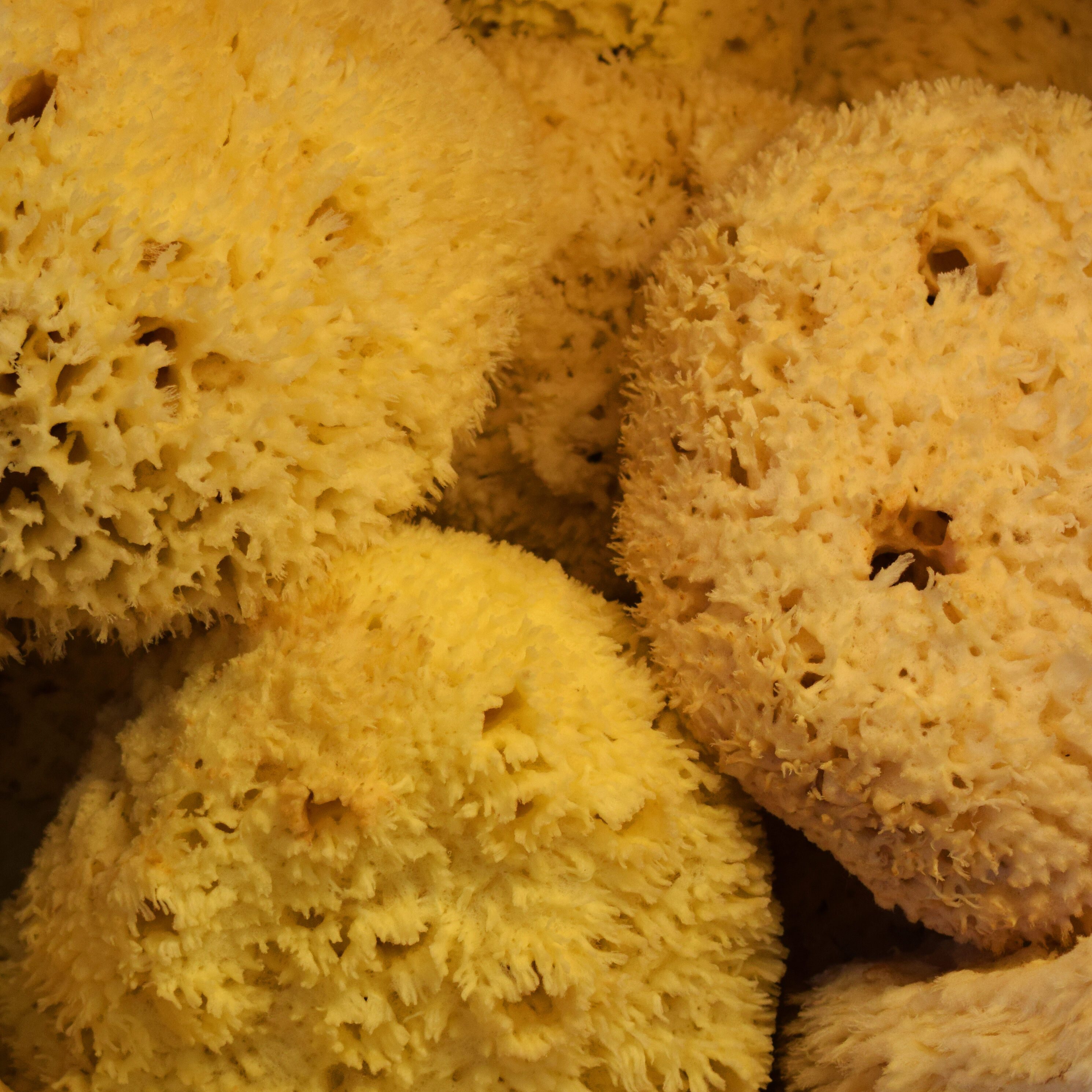 Marine Science Minute with Florida Sea GrantEpisode 45-SpongesToday on Marine Science Minute with Florida Sea Grant: Sponges2025-02-0501 min
Marine Science Minute with Florida Sea GrantEpisode 45-SpongesToday on Marine Science Minute with Florida Sea Grant: Sponges2025-02-0501 min Marine Science Minute with Florida Sea GrantEpisode 45-SpongesToday on Marine Science Minute with Florida Sea Grant: Sponges2025-02-0501 min
Marine Science Minute with Florida Sea GrantEpisode 45-SpongesToday on Marine Science Minute with Florida Sea Grant: Sponges2025-02-0501 min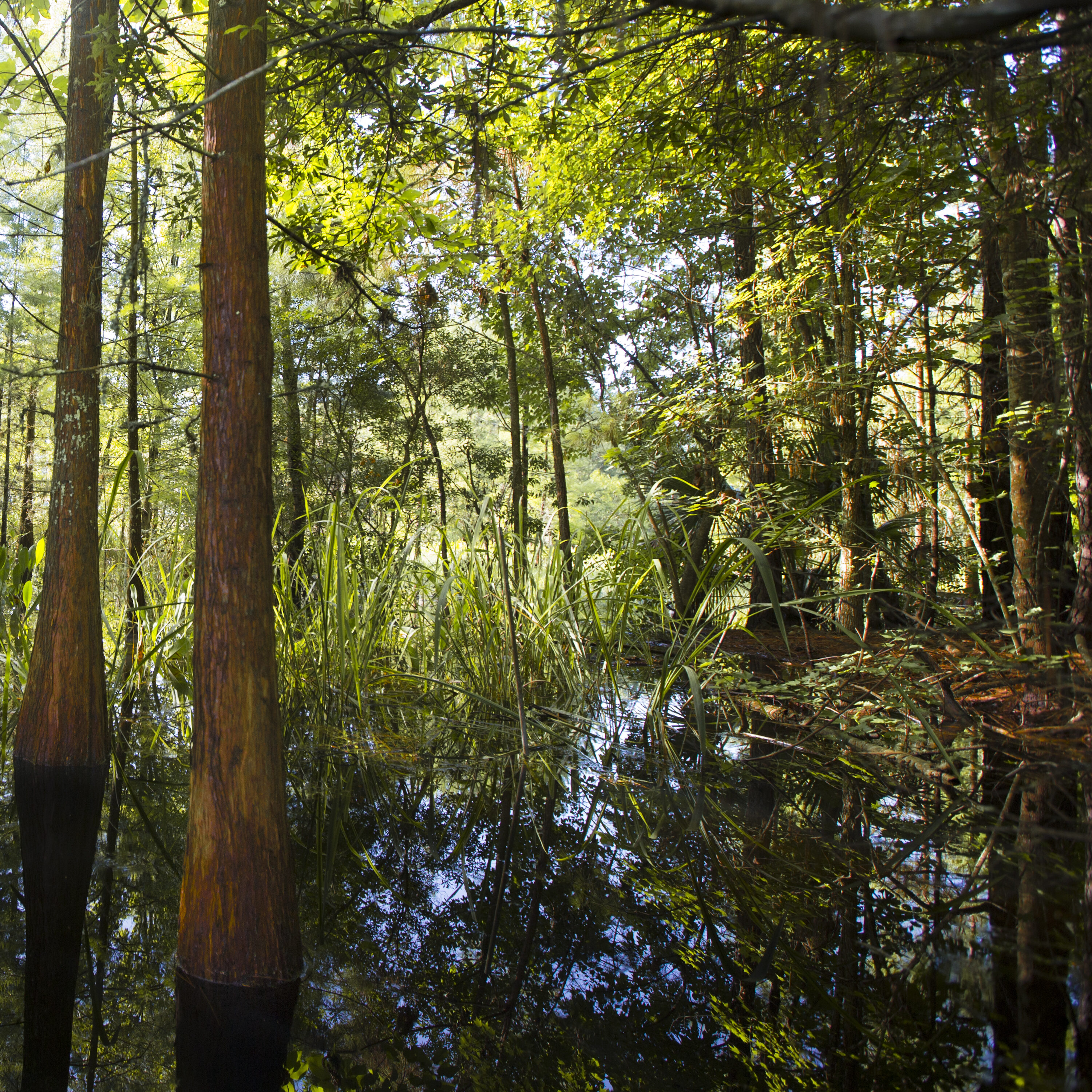 Marine Science Minute with Florida Sea GrantEpisode 44-World Wetlands DayToday on Marine Science Minute with Florida Sea Grant: World Wetlands Day2025-01-2901 min
Marine Science Minute with Florida Sea GrantEpisode 44-World Wetlands DayToday on Marine Science Minute with Florida Sea Grant: World Wetlands Day2025-01-2901 min Marine Science Minute with Florida Sea GrantEpisode 44-World Wetlands DayToday on Marine Science Minute with Florida Sea Grant: World Wetlands Day2025-01-2901 min
Marine Science Minute with Florida Sea GrantEpisode 44-World Wetlands DayToday on Marine Science Minute with Florida Sea Grant: World Wetlands Day2025-01-2901 min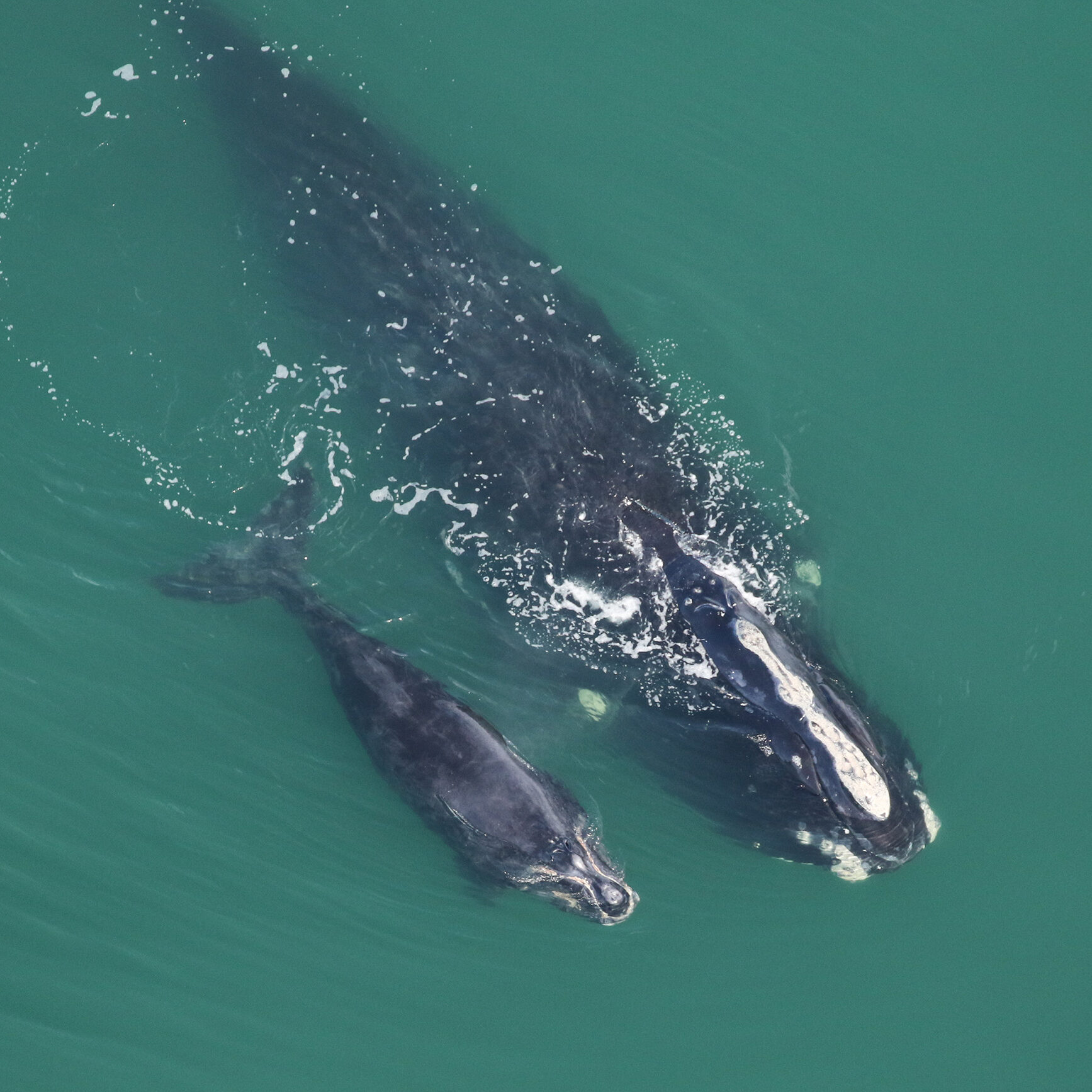 Marine Science Minute with Florida Sea GrantEpisode 43-Right WhalesToday on Marine Science Minute with Florida Sea Grant: Right Whales2025-01-2201 min
Marine Science Minute with Florida Sea GrantEpisode 43-Right WhalesToday on Marine Science Minute with Florida Sea Grant: Right Whales2025-01-2201 min Marine Science Minute with Florida Sea GrantEpisode 43-Right WhalesToday on Marine Science Minute with Florida Sea Grant: Right Whales2025-01-2201 min
Marine Science Minute with Florida Sea GrantEpisode 43-Right WhalesToday on Marine Science Minute with Florida Sea Grant: Right Whales2025-01-2201 min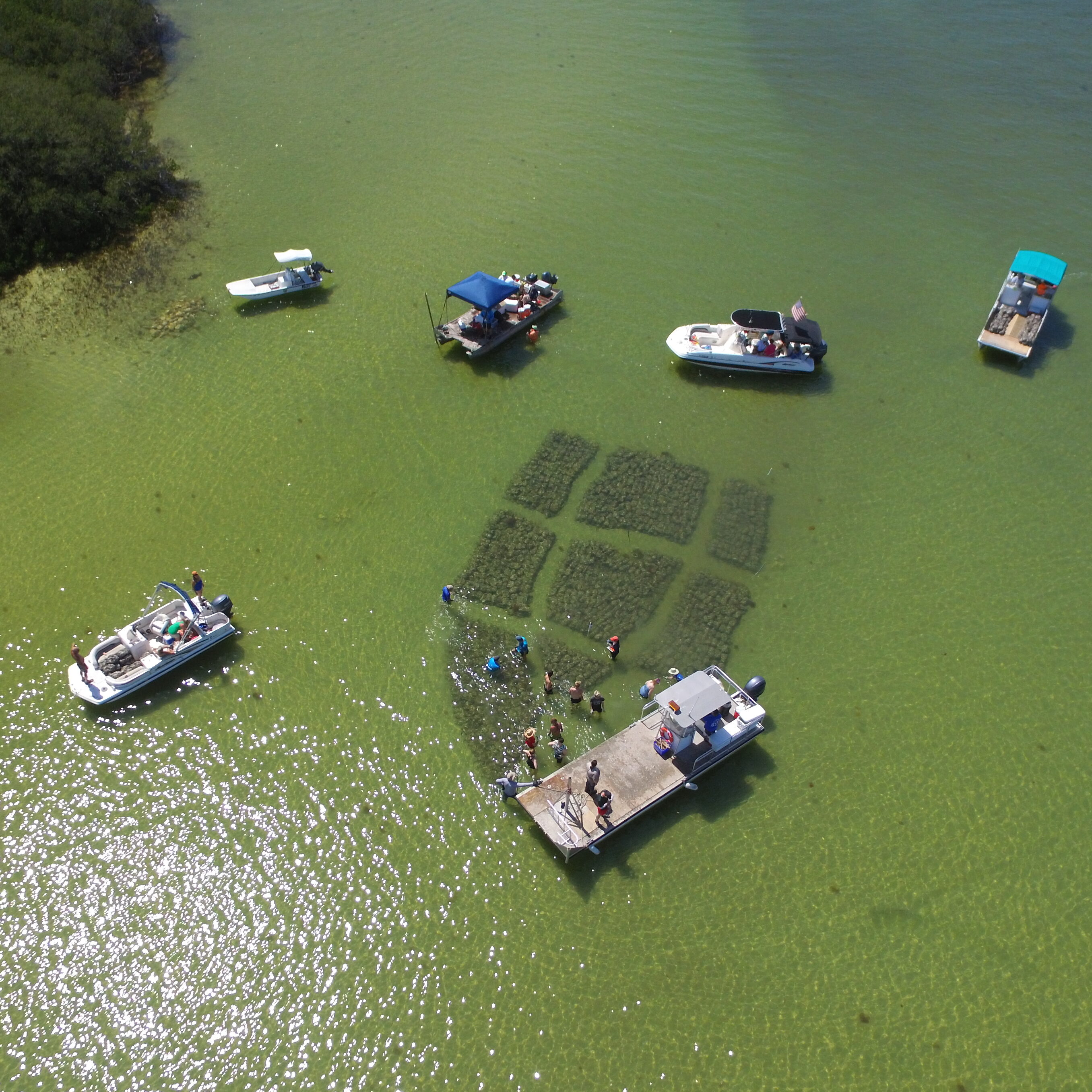 Marine Science Minute with Florida Sea GrantEpisode 42-Restoration AquacultureToday on Marine Science Minute with Florida Sea Grant: Restoration Aquaculture2025-01-1501 min
Marine Science Minute with Florida Sea GrantEpisode 42-Restoration AquacultureToday on Marine Science Minute with Florida Sea Grant: Restoration Aquaculture2025-01-1501 min Marine Science Minute with Florida Sea GrantEpisode 42-Restoration AquacultureToday on Marine Science Minute with Florida Sea Grant: Restoration Aquaculture2025-01-1501 min
Marine Science Minute with Florida Sea GrantEpisode 42-Restoration AquacultureToday on Marine Science Minute with Florida Sea Grant: Restoration Aquaculture2025-01-1501 min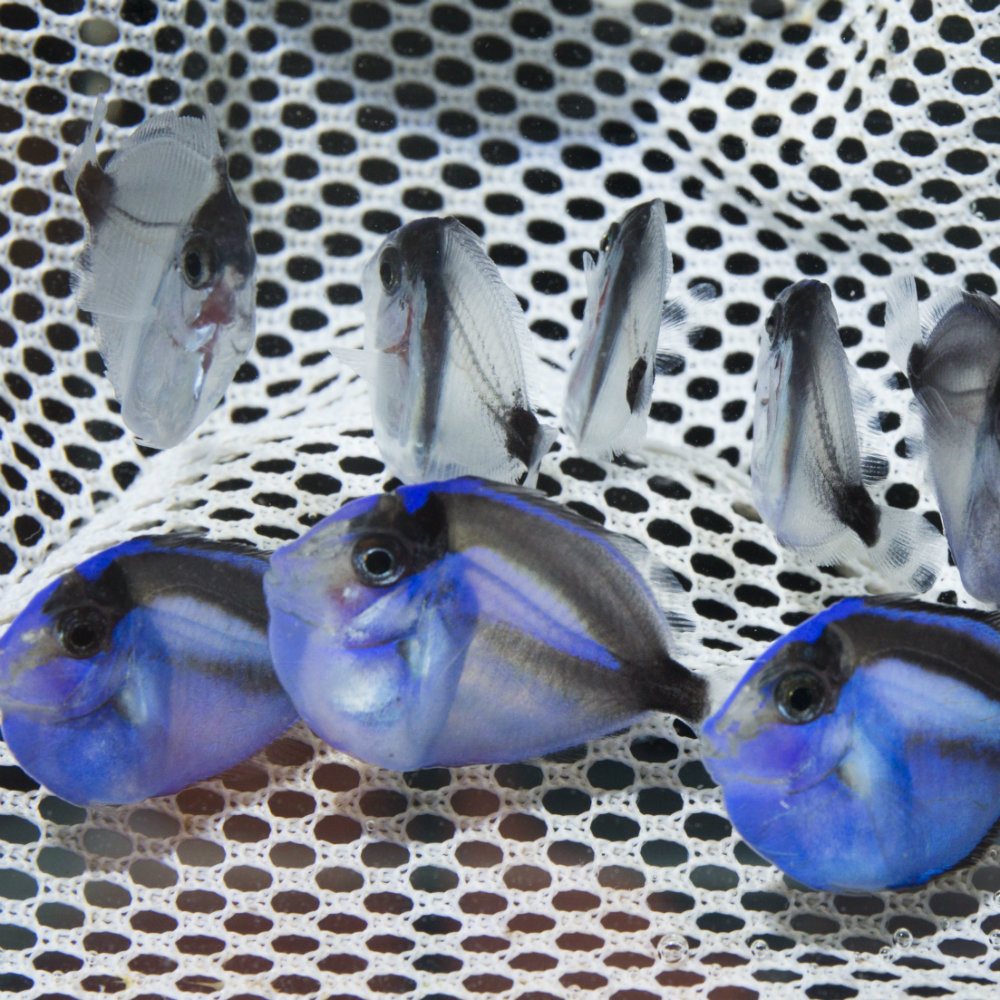 Marine Science Minute with Florida Sea GrantEpisode 41-Ornamental Fish AquacultureToday on Marine Science Minute with Florida Sea Grant: Ornamental Aquaculture2025-01-0801 min
Marine Science Minute with Florida Sea GrantEpisode 41-Ornamental Fish AquacultureToday on Marine Science Minute with Florida Sea Grant: Ornamental Aquaculture2025-01-0801 min Marine Science Minute with Florida Sea GrantEpisode 41-Ornamental Fish AquacultureToday on Marine Science Minute with Florida Sea Grant: Ornamental Aquaculture2025-01-0801 min
Marine Science Minute with Florida Sea GrantEpisode 41-Ornamental Fish AquacultureToday on Marine Science Minute with Florida Sea Grant: Ornamental Aquaculture2025-01-0801 min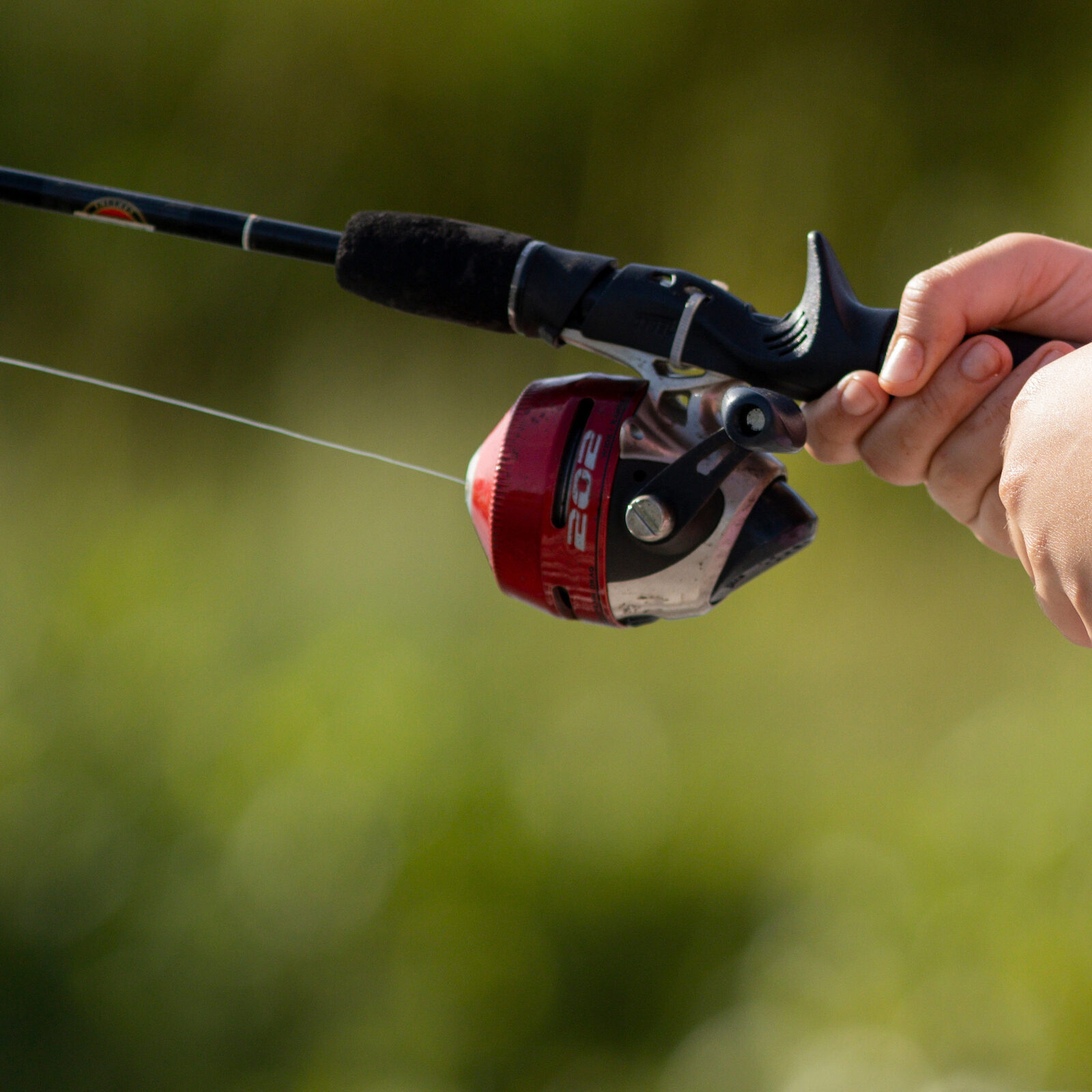 Marine Science Minute with Florida Sea GrantEpisode 39-Ethical AnglingToday on Marine Science Minute with Florida Sea Grant: Ethical Angling2024-12-2501 min
Marine Science Minute with Florida Sea GrantEpisode 39-Ethical AnglingToday on Marine Science Minute with Florida Sea Grant: Ethical Angling2024-12-2501 min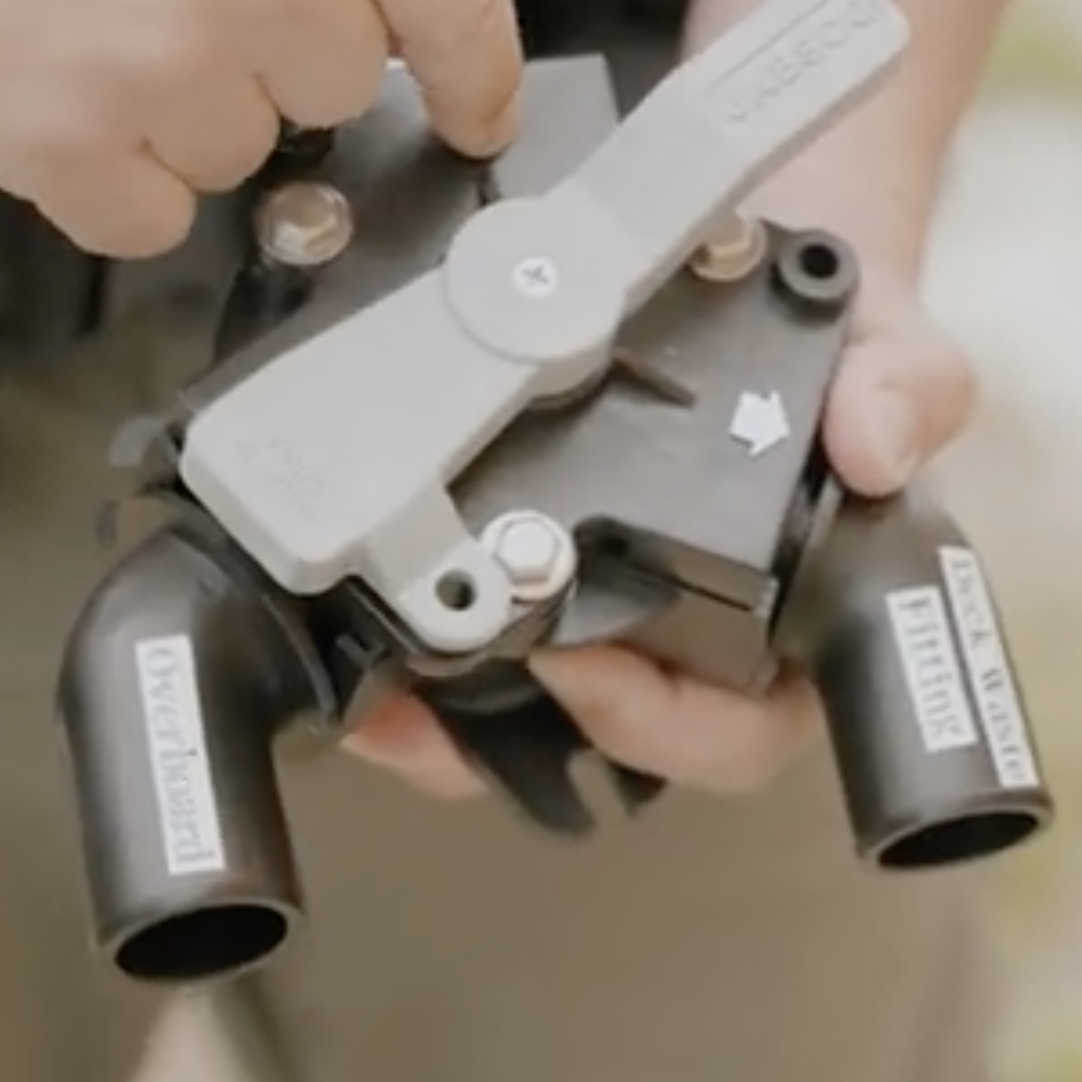 Marine Science Minute with Florida Sea GrantEpisode 38-What Is A Y-valve?Today on Marine Science Minute with Florida Sea Grant: What's the Y-Valve2024-12-1801 min
Marine Science Minute with Florida Sea GrantEpisode 38-What Is A Y-valve?Today on Marine Science Minute with Florida Sea Grant: What's the Y-Valve2024-12-1801 min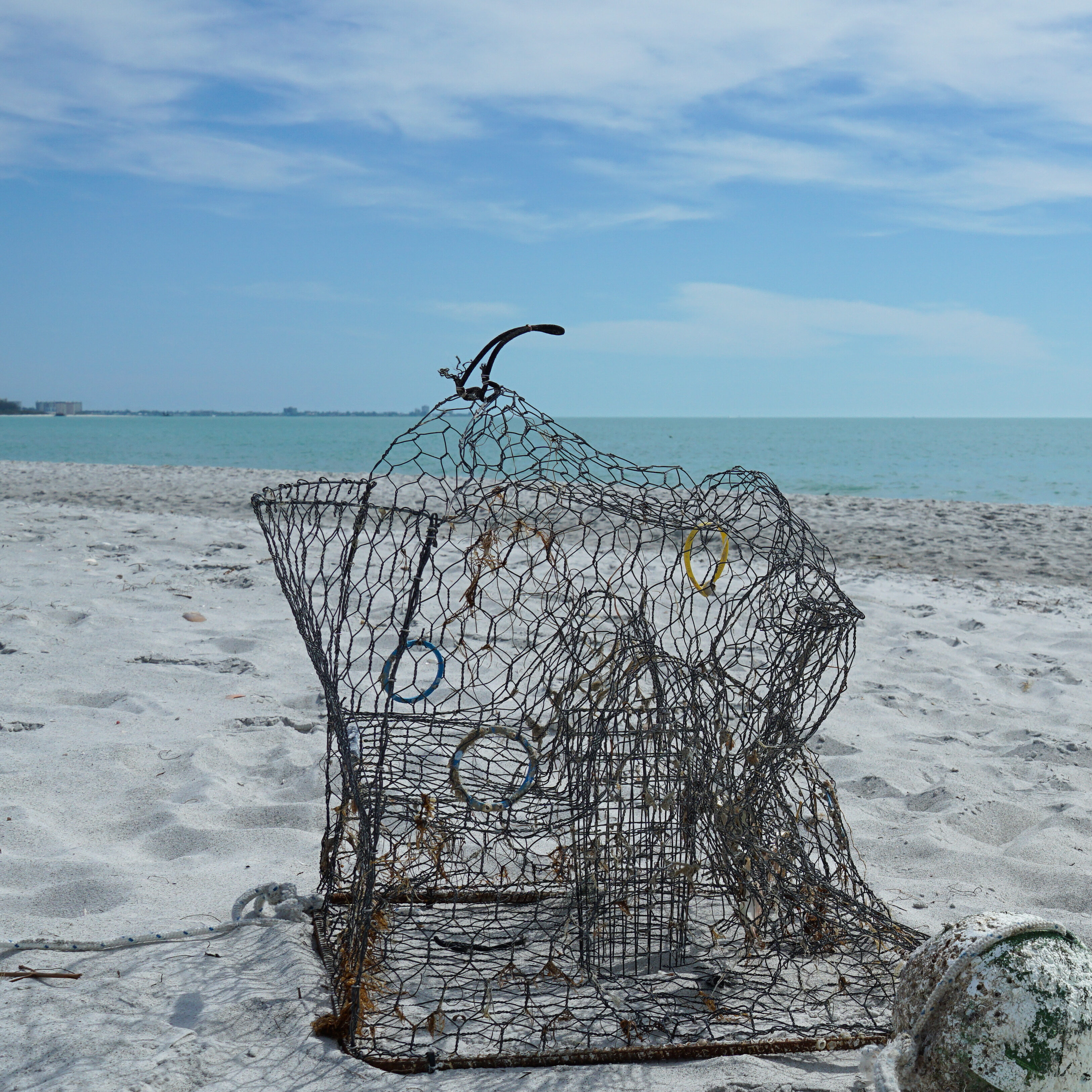 Marine Science Minute with Florida Sea GrantEpisode 37-Derelict TrapsToday on Marine Science Minute with Florida Sea Grant: Derelict Traps2024-12-1101 min
Marine Science Minute with Florida Sea GrantEpisode 37-Derelict TrapsToday on Marine Science Minute with Florida Sea Grant: Derelict Traps2024-12-1101 min Introduced20. Names that rockIntroduced is back for Season 3! In this episode, we explore the names we use for invasive species. How do species get their names? And what real-life consequences can these names bring?Transcript available here.Special thanks to our guests:Tyler Muller, North Carolina State UniversityEl Lower, Michigan Sea GrantSam Chan, Oregon Sea GrantMegan Weber, Minnesota Aquatic Invasive Species Research Center and University of Minnesota ExtensionLearn more:Tyler Muller’s research on pirate perch...2024-11-1145 min
Introduced20. Names that rockIntroduced is back for Season 3! In this episode, we explore the names we use for invasive species. How do species get their names? And what real-life consequences can these names bring?Transcript available here.Special thanks to our guests:Tyler Muller, North Carolina State UniversityEl Lower, Michigan Sea GrantSam Chan, Oregon Sea GrantMegan Weber, Minnesota Aquatic Invasive Species Research Center and University of Minnesota ExtensionLearn more:Tyler Muller’s research on pirate perch...2024-11-1145 min Wisconsin Water NewsUsing Sound to Connect People to Green BayOn a sunny morning in mid-June 2024, the Phoenix, University of Wisconsin-Green Bay’s research vessel, headed out onto the bay. Aboard were Sea Grant researchers Emily Tyner and Bill Sallak and a small mound of recording equipment. It was piloted by Chris Houghton, assistant professor and fish ecologist, who was assisted by first mate, undergraduate student Jacob Hoffman.The bay tour was only supposed to last for three hours but like in the theme song for the “Gilligan’s Island” television show, a mishap was involved.Tyner and Sallak’s project is associated with the developmen...2024-08-0917 min
Wisconsin Water NewsUsing Sound to Connect People to Green BayOn a sunny morning in mid-June 2024, the Phoenix, University of Wisconsin-Green Bay’s research vessel, headed out onto the bay. Aboard were Sea Grant researchers Emily Tyner and Bill Sallak and a small mound of recording equipment. It was piloted by Chris Houghton, assistant professor and fish ecologist, who was assisted by first mate, undergraduate student Jacob Hoffman.The bay tour was only supposed to last for three hours but like in the theme song for the “Gilligan’s Island” television show, a mishap was involved.Tyner and Sallak’s project is associated with the developmen...2024-08-0917 min The Fish Dish100% Great Lakes Fish InitiativeIn this episode we discuss the 100% Great Lakes Fish Initiative, which is a campaign aimed at commercial fishers to better use all parts of the fish they catch. Sharon and Marie speak with campaign leaders David Naftzger and John Schmidt with the Great Lakes St. Lawrence Governors and Premiers organization. Then Sharon and Marie travel to Bayfield in search of whitefish livers – a part of the fish many people don’t realize you can eat. Joining us for our whitefish liver feast at the Pier Plaza Restaurant in Bayfield is Emma Hauser, Wisconsin Sea Grant’s aquaculture outreach and educat...2024-05-2931 min
The Fish Dish100% Great Lakes Fish InitiativeIn this episode we discuss the 100% Great Lakes Fish Initiative, which is a campaign aimed at commercial fishers to better use all parts of the fish they catch. Sharon and Marie speak with campaign leaders David Naftzger and John Schmidt with the Great Lakes St. Lawrence Governors and Premiers organization. Then Sharon and Marie travel to Bayfield in search of whitefish livers – a part of the fish many people don’t realize you can eat. Joining us for our whitefish liver feast at the Pier Plaza Restaurant in Bayfield is Emma Hauser, Wisconsin Sea Grant’s aquaculture outreach and educat...2024-05-2931 min Wisconsin Water NewsEpisode 58: Wisconsin sport fish carry suite of new virusesResearchers at the University of Wisconsin-Madison have detected a suite of new viruses in five species of Wisconsin sport fish. Although none pose a threat to human health, one is a type of coronavirus that’s usually associated with birds. It was found in healthy walleyes from Wisconsin lakes. The finding is part of a Wisconsin Sea Grant-funded study by Tony Goldberg, a professor in the Department of Pathobiological Sciences, of the natural diversity of viruses of fish in Wisconsin and is the first project of its kind in North America.2024-04-1205 min
Wisconsin Water NewsEpisode 58: Wisconsin sport fish carry suite of new virusesResearchers at the University of Wisconsin-Madison have detected a suite of new viruses in five species of Wisconsin sport fish. Although none pose a threat to human health, one is a type of coronavirus that’s usually associated with birds. It was found in healthy walleyes from Wisconsin lakes. The finding is part of a Wisconsin Sea Grant-funded study by Tony Goldberg, a professor in the Department of Pathobiological Sciences, of the natural diversity of viruses of fish in Wisconsin and is the first project of its kind in North America.2024-04-1205 min The Water We Swim InLead paint, pipes, and progress in MilwaukeeHow does lead contamination affect Great Lakes communities, especially marginalized ones? In this episode, Bonnie and guest host Dr. Deidre Peroff to explore the impact of lead contamination in Milwaukee. Special thanks to our guests:Jamie Ferschinger, (former) Sixteenth Street Community Health CentersAlejandra Vigil, Sixteenth Street Community Health CentersDr. Molly Cousin, Sixteenth Street Community Health CentersProfessor Melissa Scanlan, UW-Milwaukee School of Freshwater Sciences Andrian Lee, (former) Wisconsin Sea Grant, UW-Milwaukee School of Freshwater Sciences Links:Resources for Milwaukee residents:Check if yo...2024-02-1240 min
The Water We Swim InLead paint, pipes, and progress in MilwaukeeHow does lead contamination affect Great Lakes communities, especially marginalized ones? In this episode, Bonnie and guest host Dr. Deidre Peroff to explore the impact of lead contamination in Milwaukee. Special thanks to our guests:Jamie Ferschinger, (former) Sixteenth Street Community Health CentersAlejandra Vigil, Sixteenth Street Community Health CentersDr. Molly Cousin, Sixteenth Street Community Health CentersProfessor Melissa Scanlan, UW-Milwaukee School of Freshwater Sciences Andrian Lee, (former) Wisconsin Sea Grant, UW-Milwaukee School of Freshwater Sciences Links:Resources for Milwaukee residents:Check if yo...2024-02-1240 min Wisconsin Water NewsEpisode 57: Northern Wisconsin communities benefit from climate change programLeaders in several northern Wisconsin counties and cities were chosen to participate in a Lake Superior Climate Champions Program organized by Wisconsin Sea Grant and the Lake Superior National Estuarine Research Reserve in 2023. The program provided funding and guidance to two teams to work on goals of their choosing that addressed climate change. Hear what they worked on and other outcomes of this unique program.2024-02-0605 min
Wisconsin Water NewsEpisode 57: Northern Wisconsin communities benefit from climate change programLeaders in several northern Wisconsin counties and cities were chosen to participate in a Lake Superior Climate Champions Program organized by Wisconsin Sea Grant and the Lake Superior National Estuarine Research Reserve in 2023. The program provided funding and guidance to two teams to work on goals of their choosing that addressed climate change. Hear what they worked on and other outcomes of this unique program.2024-02-0605 min Wisconsin Water NewsEpisode 56: Marine Debris Play Script Available for FreeWhat is marine debris, what are its impacts and what can we do about it? These are the central messages of a play written on behalf of Wisconsin Sea Grant by David Daniel with American Players Theatre of Wisconsin.“Me and Debry,” is a half-hour, whimsical, audience-participation play about litter (or marine debris) in the Great Lakes. It had its “world premiere” in Wisconsin’s Door County in October 2022 and it was performed three times at the Gilmore Fine Arts School in Racine, Wisconsin, for fifth- and sixth-grade students in May 2023.The play’s script has been fin...2024-01-2908 min
Wisconsin Water NewsEpisode 56: Marine Debris Play Script Available for FreeWhat is marine debris, what are its impacts and what can we do about it? These are the central messages of a play written on behalf of Wisconsin Sea Grant by David Daniel with American Players Theatre of Wisconsin.“Me and Debry,” is a half-hour, whimsical, audience-participation play about litter (or marine debris) in the Great Lakes. It had its “world premiere” in Wisconsin’s Door County in October 2022 and it was performed three times at the Gilmore Fine Arts School in Racine, Wisconsin, for fifth- and sixth-grade students in May 2023.The play’s script has been fin...2024-01-2908 min The Water We Swim In4. Public Trust: David and GoliathFor the final episode of Public Trust, we head to the communities of Peshtigo and Marinette in northeast Wisconsin, where we meet local residents who have been engaged in a yearslong battle with a multinational company that polluted their drinking water with PFAS. We learn how community members have come together to fight for clean water and why they are committed for the long haul. Transcript available here.Learn more:Midwest Environmental AdvocatesWisconsin Sea Grant2023-12-1929 min
The Water We Swim In4. Public Trust: David and GoliathFor the final episode of Public Trust, we head to the communities of Peshtigo and Marinette in northeast Wisconsin, where we meet local residents who have been engaged in a yearslong battle with a multinational company that polluted their drinking water with PFAS. We learn how community members have come together to fight for clean water and why they are committed for the long haul. Transcript available here.Learn more:Midwest Environmental AdvocatesWisconsin Sea Grant2023-12-1929 min Ask Dr. FishFeast of the Seven FishmasesOur Drs. Fish celebrate Fishmas and take questions about cisco spawning, trading mackerel in prison, and more. Plus, the Ask Dr. Fish challenge and Game of the Month! Recorded live, December 2023.Show links:Stuart's brand-new song, entitled "The Day after Fishmas"Video of the "Feast of the Seven Fishes" gamehttps://www.seagrant.wisc.edu/news/sea-grant-education-on-fishery-expected-to-lead-to-15-million-in-exports-to-sweden/ https://www.businessinsider.com/ftx-ftx-trading-fish-in-prison-for-services-crypto-2023-11https://fee.org/articles/how-a-fish-became-prison-currency/https://hakaimagazine.com/article-short/cod-currency/https://www.fisheries.noaa.gov/feature-story/industry-vs-diadromy-story-migratory-fish-merrimack-riverhttps://www.atlasobscura.com/articles/medieval-eel-rent-map-englandShow credits:Hosts & Producers: Stuart Carlton, Carolyn Foley, Katie O...2023-12-1254 min
Ask Dr. FishFeast of the Seven FishmasesOur Drs. Fish celebrate Fishmas and take questions about cisco spawning, trading mackerel in prison, and more. Plus, the Ask Dr. Fish challenge and Game of the Month! Recorded live, December 2023.Show links:Stuart's brand-new song, entitled "The Day after Fishmas"Video of the "Feast of the Seven Fishes" gamehttps://www.seagrant.wisc.edu/news/sea-grant-education-on-fishery-expected-to-lead-to-15-million-in-exports-to-sweden/ https://www.businessinsider.com/ftx-ftx-trading-fish-in-prison-for-services-crypto-2023-11https://fee.org/articles/how-a-fish-became-prison-currency/https://hakaimagazine.com/article-short/cod-currency/https://www.fisheries.noaa.gov/feature-story/industry-vs-diadromy-story-migratory-fish-merrimack-riverhttps://www.atlasobscura.com/articles/medieval-eel-rent-map-englandShow credits:Hosts & Producers: Stuart Carlton, Carolyn Foley, Katie O...2023-12-1254 min The Water We Swim In3. Public Trust: Testing the WatersAre PFAS in maple sap, wild rice, fish and other harvestable goods important to the Anishinaabe way of life? These are some of the questions the Voigt Intertribal Task Force asked Gavin Dehnert, Wisconsin Sea Grant’s emerging contaminants scientist, after PFAS were found in wolves. In this episode, Public Trust producer Bonnie tells Richelle about the beginnings of a tribally-driven research project testing the waters of the ceded territories of Wisconsin, Minnesota and Michigan for PFAS.Learn more:Midwest Environmental AdvocatesWisconsin Sea GrantGLIFWC - Great Lakes Indian Fish an...2023-11-1536 min
The Water We Swim In3. Public Trust: Testing the WatersAre PFAS in maple sap, wild rice, fish and other harvestable goods important to the Anishinaabe way of life? These are some of the questions the Voigt Intertribal Task Force asked Gavin Dehnert, Wisconsin Sea Grant’s emerging contaminants scientist, after PFAS were found in wolves. In this episode, Public Trust producer Bonnie tells Richelle about the beginnings of a tribally-driven research project testing the waters of the ceded territories of Wisconsin, Minnesota and Michigan for PFAS.Learn more:Midwest Environmental AdvocatesWisconsin Sea GrantGLIFWC - Great Lakes Indian Fish an...2023-11-1536 min Wisconsin Water NewsEpisode 54: Plastics learning kit educates and enthrallsWisconsin Sea Grant’s Anne Moser has learned enough about wastewater treatment to create “Plastic Panic,” a grab-and-go kit that formal and nonformal educators can use to teach about plastic pollution in the Great Lakes, specifically, microplastics. The colorful artwork in the “grab-and-go” kit both educates and enthralls it audiences.2023-11-0305 min
Wisconsin Water NewsEpisode 54: Plastics learning kit educates and enthrallsWisconsin Sea Grant’s Anne Moser has learned enough about wastewater treatment to create “Plastic Panic,” a grab-and-go kit that formal and nonformal educators can use to teach about plastic pollution in the Great Lakes, specifically, microplastics. The colorful artwork in the “grab-and-go” kit both educates and enthralls it audiences.2023-11-0305 min The Water We Swim In2. Public Trust: Fighting FiresFirefighting foams made from PFAS have been used at airports for decades, contaminating groundwater throughout the country. In this episode of Public Trust, we return to French Island, a community near La Crosse in Western Wisconsin, to learn more about how local drinking water became contaminated with PFAS.Listen to episode 1 of Public Trust here.View the transcriptMidwest Environmental AdvocatesWisconsin Sea GrantMore about PFASLee Donahue’s testimony audio clip courtesy of Wisconsin Eye2023-10-2522 min
The Water We Swim In2. Public Trust: Fighting FiresFirefighting foams made from PFAS have been used at airports for decades, contaminating groundwater throughout the country. In this episode of Public Trust, we return to French Island, a community near La Crosse in Western Wisconsin, to learn more about how local drinking water became contaminated with PFAS.Listen to episode 1 of Public Trust here.View the transcriptMidwest Environmental AdvocatesWisconsin Sea GrantMore about PFASLee Donahue’s testimony audio clip courtesy of Wisconsin Eye2023-10-2522 min The Water We Swim In1. Public Trust: Tapped OutPublic Trust is a new podcast miniseries by Midwest Environmental Advocates and Wisconsin Sea Grant. The series explores Wisconsin's response to PFAS contamination. Host Richelle Wilson visits communities impacted by these toxic "forever chemicals" to understand how local residents have been affected and what they're doing to secure their rights to clean water.In this episode, we travel to the small town of Campbell on French Island, to find out. French Island resident and local official Lee Donahue gives us a tour of the neighborhood and tells the story of how local drinking water was contaminated with "...2023-10-0424 min
The Water We Swim In1. Public Trust: Tapped OutPublic Trust is a new podcast miniseries by Midwest Environmental Advocates and Wisconsin Sea Grant. The series explores Wisconsin's response to PFAS contamination. Host Richelle Wilson visits communities impacted by these toxic "forever chemicals" to understand how local residents have been affected and what they're doing to secure their rights to clean water.In this episode, we travel to the small town of Campbell on French Island, to find out. French Island resident and local official Lee Donahue gives us a tour of the neighborhood and tells the story of how local drinking water was contaminated with "...2023-10-0424 min Wisconsin Water NewsEpisode 52: Providing Access for All to a National LakeshoreHow do you make a park in the middle of Lake Superior accessible to people with disabilities? Natalie Chin and Marie Zhuikov from Wisconsin Sea Grant had the chance to travel to Stockton Island in the Apostle Islands National Lakeshore to see first-hand what the park is doing to make it more accessible.2023-08-2907 min
Wisconsin Water NewsEpisode 52: Providing Access for All to a National LakeshoreHow do you make a park in the middle of Lake Superior accessible to people with disabilities? Natalie Chin and Marie Zhuikov from Wisconsin Sea Grant had the chance to travel to Stockton Island in the Apostle Islands National Lakeshore to see first-hand what the park is doing to make it more accessible.2023-08-2907 min Wisconsin Water NewsEpisode 51: Lack of housing looms large as barrier to nature-based jobs in northern WisconsinA report published recently by Wisconsin Sea Grant cites a lack of housing as a major barrier to development of nature-based jobs in Wisconsin’s northern tier. This includes Douglas, Ashland, Bayfield and Iron counties. This episode features interviews with the report authors and panel members from a webinar about the report, “Workforce Needs for Nature-Based Solutions in Wisconsin’s Northern Tier.”2023-08-2407 min
Wisconsin Water NewsEpisode 51: Lack of housing looms large as barrier to nature-based jobs in northern WisconsinA report published recently by Wisconsin Sea Grant cites a lack of housing as a major barrier to development of nature-based jobs in Wisconsin’s northern tier. This includes Douglas, Ashland, Bayfield and Iron counties. This episode features interviews with the report authors and panel members from a webinar about the report, “Workforce Needs for Nature-Based Solutions in Wisconsin’s Northern Tier.”2023-08-2407 min The Fish DishShore LunchIn this episode, The Fish Dish takes the kitchen to the beach – Wisconsin Point Beach, to be exact, along the shore of Lake Superior. With summer full upon us, we thought it would be fun to bring you along on a classic dining experience: the shore lunch. Joining us were Emma Hauser, an aquaculture outreach and education specialist with Sea Grant and the Northern Aquaculture Demonstration Facility; Russ, intrepid taste-tester and Fish Dish volunteer; and Jojo Hunt and Crow Idnani -- two summer scholars who are working with Sharon and Emma to learn strategies for engaging a variety of au...2023-08-1415 min
The Fish DishShore LunchIn this episode, The Fish Dish takes the kitchen to the beach – Wisconsin Point Beach, to be exact, along the shore of Lake Superior. With summer full upon us, we thought it would be fun to bring you along on a classic dining experience: the shore lunch. Joining us were Emma Hauser, an aquaculture outreach and education specialist with Sea Grant and the Northern Aquaculture Demonstration Facility; Russ, intrepid taste-tester and Fish Dish volunteer; and Jojo Hunt and Crow Idnani -- two summer scholars who are working with Sharon and Emma to learn strategies for engaging a variety of au...2023-08-1415 min Wisconsin Water NewsEpisode 50: Persistent Pollution: Researchers Investigate the key to E. coli Bacteria Survival in Lake Michigan Beach Sand and WaterSea Grant-funded researchers Sandra McLellan and Gyaneshwar Prasad, both with the University of Wisconsin-Milwaukee, are building on previous research to find ways to decomplicate beach managers’ lives by determining what factors could limit long-term survival of E. coli on beaches. They are also in the process of developing a scorecard for the potential of long-term E. coli reservoirs for each of the six Lake Michigan beaches they are studying.2023-07-2105 min
Wisconsin Water NewsEpisode 50: Persistent Pollution: Researchers Investigate the key to E. coli Bacteria Survival in Lake Michigan Beach Sand and WaterSea Grant-funded researchers Sandra McLellan and Gyaneshwar Prasad, both with the University of Wisconsin-Milwaukee, are building on previous research to find ways to decomplicate beach managers’ lives by determining what factors could limit long-term survival of E. coli on beaches. They are also in the process of developing a scorecard for the potential of long-term E. coli reservoirs for each of the six Lake Michigan beaches they are studying.2023-07-2105 min Wisconsin Water NewsEpisode 48: Testing Ceded Territories for PFAS at request of tribesThe three-year tribally driven project called, “Quantifying PFAS bioaccumulation and health impacts on economically important plants and animals associated with aquatic ecosystems in Ceded Territories,” was recently funded. The project has three goals: One is to assess aquatic environments for PFAS contamination in the Ceded Territories, two is to determine the accumulation of PFAS in different plants and animals and three is to understand the health impacts from PFAS exposure.The project involves Gavin Dehner with Wisconsin Sea Grant, Jonathan Gilbert with the Great Lakes Indian Fish and Wildlife Commission, Emily Cornelius Ruhs with the University of Chic...2023-04-0306 min
Wisconsin Water NewsEpisode 48: Testing Ceded Territories for PFAS at request of tribesThe three-year tribally driven project called, “Quantifying PFAS bioaccumulation and health impacts on economically important plants and animals associated with aquatic ecosystems in Ceded Territories,” was recently funded. The project has three goals: One is to assess aquatic environments for PFAS contamination in the Ceded Territories, two is to determine the accumulation of PFAS in different plants and animals and three is to understand the health impacts from PFAS exposure.The project involves Gavin Dehner with Wisconsin Sea Grant, Jonathan Gilbert with the Great Lakes Indian Fish and Wildlife Commission, Emily Cornelius Ruhs with the University of Chic...2023-04-0306 min The Fish DishHappy Burbotine’s Day!In this episode Sharon and Marie interview Titus Seilheimer, Sea Grant’s fisheries outreach specialist. Then they travel to Cornucopia, Wisconsin, on the south shore of Lake Superior to speak with staff from Halvorson Fisheries. What’s the topic? Burbot!If you’re not familiar with what a burbot fish is, you will be by the time the podcast is over. Plus, a very special day is coming up soon. Most people call it Valentine’s Day, but at the Fish Dish we call it something else due to an important event in the burbot life cycle.For...2023-02-1024 min
The Fish DishHappy Burbotine’s Day!In this episode Sharon and Marie interview Titus Seilheimer, Sea Grant’s fisheries outreach specialist. Then they travel to Cornucopia, Wisconsin, on the south shore of Lake Superior to speak with staff from Halvorson Fisheries. What’s the topic? Burbot!If you’re not familiar with what a burbot fish is, you will be by the time the podcast is over. Plus, a very special day is coming up soon. Most people call it Valentine’s Day, but at the Fish Dish we call it something else due to an important event in the burbot life cycle.For...2023-02-1024 min The Water We Swim InFire, blueberries and treaty rightsToday, we're talking about red pine forests, blueberries, treaty rights, and how they all converge around fire on a tiny split of land jutting out into Lake Superior - Minnesota and Wisconsin Points. Melonee Montano tells us about the importance of cultural fire for the Anishinaabe people and Evan Larson takes us on a walk in the woods to decipher the stories left by elder trees. Wildland firefighter Damon Panek shares his vision for collaboratively restoring fire to Wisconsin and Minnesota points, an end goal of the Nimaawanji’idimin giiwitaashkodeng: We are all gathering around the fire project, funded by...2023-02-0846 min
The Water We Swim InFire, blueberries and treaty rightsToday, we're talking about red pine forests, blueberries, treaty rights, and how they all converge around fire on a tiny split of land jutting out into Lake Superior - Minnesota and Wisconsin Points. Melonee Montano tells us about the importance of cultural fire for the Anishinaabe people and Evan Larson takes us on a walk in the woods to decipher the stories left by elder trees. Wildland firefighter Damon Panek shares his vision for collaboratively restoring fire to Wisconsin and Minnesota points, an end goal of the Nimaawanji’idimin giiwitaashkodeng: We are all gathering around the fire project, funded by...2023-02-0846 min The Water We Swim InSeason Two: An UpdateHear an update about season two and a farewell message from Hali, co-creator of The Water We Swim In and former Wisconsin Sea Grant intern.2023-02-0605 min
The Water We Swim InSeason Two: An UpdateHear an update about season two and a farewell message from Hali, co-creator of The Water We Swim In and former Wisconsin Sea Grant intern.2023-02-0605 min Wisconsin Water NewsEpisode 47: The Stories Trees TellA Wisconsin Sea Grant-funded research and outreach project is designed to explore how the Anishinaabe people connected to and homesteaded the lands of Wisconsin and Minnesota points and how they used fire to manage the landscape. The project name, “Nimaawanji’idimin Giiwitaashkodeng,” translates into “We are all gathering around the fire.” It is being led by Evan Larson with the University of Wisconsin-Platteville, and Melonee Montano, a Red Cliff tribal member and a University of Minnesota graduate student.2023-01-0516 min
Wisconsin Water NewsEpisode 47: The Stories Trees TellA Wisconsin Sea Grant-funded research and outreach project is designed to explore how the Anishinaabe people connected to and homesteaded the lands of Wisconsin and Minnesota points and how they used fire to manage the landscape. The project name, “Nimaawanji’idimin Giiwitaashkodeng,” translates into “We are all gathering around the fire.” It is being led by Evan Larson with the University of Wisconsin-Platteville, and Melonee Montano, a Red Cliff tribal member and a University of Minnesota graduate student.2023-01-0516 min Wisconsin Water NewsEpisode 45: Accessible Birding Event DeliversBarker’s Island in the Duluth-Superior Harbor was the site of a free, bird-focused morning during the fall of 2022. People of all ages and ability levels attended an accessible birding outing led by experts from the Hawk Ridge Bird Observatory and the Friends of the Lake Superior Reserve.This free event was made possible through the University of Wisconsin–Madison Dean’s Innovation Grant to collaborators from Upham Woods Outdoor Learning Center, the Reserve, Wisconsin Sea Grant, University of Wisconsin Extension, and Bayfield and Ashland counties.2022-10-2505 min
Wisconsin Water NewsEpisode 45: Accessible Birding Event DeliversBarker’s Island in the Duluth-Superior Harbor was the site of a free, bird-focused morning during the fall of 2022. People of all ages and ability levels attended an accessible birding outing led by experts from the Hawk Ridge Bird Observatory and the Friends of the Lake Superior Reserve.This free event was made possible through the University of Wisconsin–Madison Dean’s Innovation Grant to collaborators from Upham Woods Outdoor Learning Center, the Reserve, Wisconsin Sea Grant, University of Wisconsin Extension, and Bayfield and Ashland counties.2022-10-2505 min The Water We Swim InReconnecting through booksBooks provide a plethora of perspectives, and it is important for people from all walks of life to have access to books about their culture, language, and way of life. This is why Wisconsin Sea Grant and the Great Lakes Indian Fish and Wildlife Commission teamed up to create a book club called “Maadagindan! Start Reading!”, which aims to increase awareness of Ojibwe culture and teach kids, and educators, about the Great Lakes. Today, we specifically focus on the Native American community, who as a result of ethnic cleansing have lost many of their cultural aspects of life. In this...2022-08-1150 min
The Water We Swim InReconnecting through booksBooks provide a plethora of perspectives, and it is important for people from all walks of life to have access to books about their culture, language, and way of life. This is why Wisconsin Sea Grant and the Great Lakes Indian Fish and Wildlife Commission teamed up to create a book club called “Maadagindan! Start Reading!”, which aims to increase awareness of Ojibwe culture and teach kids, and educators, about the Great Lakes. Today, we specifically focus on the Native American community, who as a result of ethnic cleansing have lost many of their cultural aspects of life. In this...2022-08-1150 min The Water We Swim InEating fish (soup) safelyImmigrants and refugees often bring their food habits with them to their new homes. This includes their love for fishing, or maybe their favorite fish soup recipe. But what happens when immigrant families rely on fish from contaminated waters? A Wisconsin Department of Health Services study found that in the Burmese refugee community in Milwaukee, women of childbearing age had higher levels of Mercury, PCBs, and lead in their blood levels compared to other Milwaukee women of the same age. In this episode, we are joined by Judy Yan, Amanda Haban, Dr. Gavin Dehnert and Dr. Tom Pearson as...2022-06-2331 min
The Water We Swim InEating fish (soup) safelyImmigrants and refugees often bring their food habits with them to their new homes. This includes their love for fishing, or maybe their favorite fish soup recipe. But what happens when immigrant families rely on fish from contaminated waters? A Wisconsin Department of Health Services study found that in the Burmese refugee community in Milwaukee, women of childbearing age had higher levels of Mercury, PCBs, and lead in their blood levels compared to other Milwaukee women of the same age. In this episode, we are joined by Judy Yan, Amanda Haban, Dr. Gavin Dehnert and Dr. Tom Pearson as...2022-06-2331 min The Water We Swim InAccess is justiceIn this episode, we focus on accessibility in the Great Lakes region. How does a wheelchair user navigate at a beach? How does a blind person enjoy the coasts? We talk with leaders that have been working to make the outdoors more accessible for people with disabilities. You can expect to hear from people like Damian Buchman; the founder and executive director of the Ability Center, who helped make a Wisconsin beach the most accessible beach in the country. But we were also curious about the rest of the beaches across the state. We talk to Courtney Gunville and...2022-06-0926 min
The Water We Swim InAccess is justiceIn this episode, we focus on accessibility in the Great Lakes region. How does a wheelchair user navigate at a beach? How does a blind person enjoy the coasts? We talk with leaders that have been working to make the outdoors more accessible for people with disabilities. You can expect to hear from people like Damian Buchman; the founder and executive director of the Ability Center, who helped make a Wisconsin beach the most accessible beach in the country. But we were also curious about the rest of the beaches across the state. We talk to Courtney Gunville and...2022-06-0926 min IntroducedIntroducing: The Water We Swim InToday, we’re introducing a new podcast from Wisconsin Sea Grant called The Water We Swim In, which features stories about the Great Lakes and the people working toward equity.On “Hidden Currents,” Bonnie Willison and Hali Jama dive beneath the water to explore why Black children are drowning more than any other race, why marginalized communities often lack access to swimming pools, and how to stay safe in the water. We hear about the alarming trend facing swimming pools in cities across the nation, relive a fight to save one Milwaukee pool, and walk the shores of Lak...2022-06-0829 min
IntroducedIntroducing: The Water We Swim InToday, we’re introducing a new podcast from Wisconsin Sea Grant called The Water We Swim In, which features stories about the Great Lakes and the people working toward equity.On “Hidden Currents,” Bonnie Willison and Hali Jama dive beneath the water to explore why Black children are drowning more than any other race, why marginalized communities often lack access to swimming pools, and how to stay safe in the water. We hear about the alarming trend facing swimming pools in cities across the nation, relive a fight to save one Milwaukee pool, and walk the shores of Lak...2022-06-0829 min The Water We Swim InHidden CurrentsIn this episode, we dive beneath the water to explore why Black children are drowning more than any other race, why marginalized communities often lack access to swimming pools, and how to stay safe in the water. We hear about the alarming trend facing swimming pools in cities across the nation, relive a fight to save one Milwaukee pool, and walk the shores of Lake Michigan with the Beach Ambassador program. Join us as Brenda Coley, Jumana Tanner, Cheryl Bledsoe, Sally Callan, and Deidre Peroff discuss how racism, segregation and redlining has taken away Black people’s access to wa...2022-05-2628 min
The Water We Swim InHidden CurrentsIn this episode, we dive beneath the water to explore why Black children are drowning more than any other race, why marginalized communities often lack access to swimming pools, and how to stay safe in the water. We hear about the alarming trend facing swimming pools in cities across the nation, relive a fight to save one Milwaukee pool, and walk the shores of Lake Michigan with the Beach Ambassador program. Join us as Brenda Coley, Jumana Tanner, Cheryl Bledsoe, Sally Callan, and Deidre Peroff discuss how racism, segregation and redlining has taken away Black people’s access to wa...2022-05-2628 min The Water We Swim InFresh water, old problemsWhen most people think of water and environmental justice, they think of the Flint water crisis. On the introductory episode of The Water We Swim In, Bonnie and Hali talk to UW-Madison’s Dr. Manny Teodoro. Dr. Teodoro walks us through the troubled history of racial conflict in the Great Lakes region, why Flint captured the public’s imagination, and what we can do about the historic legacies that still impact our freshwater today. Special thanks to our guests:Dr. Manny Teodoro, University of Wisconsin-MadisonDr. Jim Hurley, Wisconsin Sea GrantMoira...2022-05-1224 min
The Water We Swim InFresh water, old problemsWhen most people think of water and environmental justice, they think of the Flint water crisis. On the introductory episode of The Water We Swim In, Bonnie and Hali talk to UW-Madison’s Dr. Manny Teodoro. Dr. Teodoro walks us through the troubled history of racial conflict in the Great Lakes region, why Flint captured the public’s imagination, and what we can do about the historic legacies that still impact our freshwater today. Special thanks to our guests:Dr. Manny Teodoro, University of Wisconsin-MadisonDr. Jim Hurley, Wisconsin Sea GrantMoira...2022-05-1224 min The Water We Swim InTrailer: The Water We Swim InOn The Water We Swim In, Wisconsin Sea Grant brings you stories from the community organizers, researchers, and leaders navigating Wisconsin’s water. Subscribe now wherever you get your podcasts.2022-05-0301 min
The Water We Swim InTrailer: The Water We Swim InOn The Water We Swim In, Wisconsin Sea Grant brings you stories from the community organizers, researchers, and leaders navigating Wisconsin’s water. Subscribe now wherever you get your podcasts.2022-05-0301 min Wisconsin Water NewsEpisode 41, Use of Fluridone in Lakes – 4/4/22Gavin Dehnert with Wisconsin Sea Grant is part of a research team that found the use of the herbicide fluridone in lakes to control Eurasian watermilfoil is a good news, bad news story.
2022-04-0404 min
Wisconsin Water NewsEpisode 41, Use of Fluridone in Lakes – 4/4/22Gavin Dehnert with Wisconsin Sea Grant is part of a research team that found the use of the herbicide fluridone in lakes to control Eurasian watermilfoil is a good news, bad news story.
2022-04-0404 min Wisconsin Water NewsEpisode 37: Lake Michigan Bluff Restoration – 9/2/21A two-year project by three Sea Grant programs seeks to address complex erosion issues on Lake Michigan through an integrated physical, social and community approach. It’s led by Chin Wu with the University of Wisconsin-Madison.
2021-09-0208 min
Wisconsin Water NewsEpisode 37: Lake Michigan Bluff Restoration – 9/2/21A two-year project by three Sea Grant programs seeks to address complex erosion issues on Lake Michigan through an integrated physical, social and community approach. It’s led by Chin Wu with the University of Wisconsin-Madison.
2021-09-0208 min Wisconsin Water NewsEpisode 36: Beach Ambassadors Fill Vital Role, 7/8/21Sea Grant’s Deidre Peroff and Jumana Tanner are part of a program designed to keep beachgoers in Milwaukee safe even though there are no lifeguards on beaches there this summer.
2021-07-0806 min
Wisconsin Water NewsEpisode 36: Beach Ambassadors Fill Vital Role, 7/8/21Sea Grant’s Deidre Peroff and Jumana Tanner are part of a program designed to keep beachgoers in Milwaukee safe even though there are no lifeguards on beaches there this summer.
2021-07-0806 min Wisconsin Water NewsEpisode 35: Coastal Engineering Education Project, 6/11/2021Wisconsin Sea Grant’s Anne Moser and Adam Bechle are beginning a project designed to connect middle-school students in Racine to their watershed by exploring coastal engineering concepts.
2021-06-1106 min
Wisconsin Water NewsEpisode 35: Coastal Engineering Education Project, 6/11/2021Wisconsin Sea Grant’s Anne Moser and Adam Bechle are beginning a project designed to connect middle-school students in Racine to their watershed by exploring coastal engineering concepts.
2021-06-1106 min Introduced17. Crayfish crisis (Rerun)On August 27, 2009, the Wisconsin Department of Natural Resources gets a call about small lobsters crawling around a neighborhood pond in Germantown. The extent of the problem is more than anyone bargained for.Thanks to our guestsTim Campbell, Wisconsin Sea GrantPete Jopke, Wisconsin Department of Natural ResourcesTim Zabel, initial sighterHeidi Bunk, Wisconsin Department of Natural ResourcesScott Van Egeren, Wisconsin Department of Natural ResourcesDoug and Mary, Esquire Estates residentsJake Vander Zanden, University of Wisconsin-MadisonErin Vennie-Vollrath, (forme...2021-05-2630 min
Introduced17. Crayfish crisis (Rerun)On August 27, 2009, the Wisconsin Department of Natural Resources gets a call about small lobsters crawling around a neighborhood pond in Germantown. The extent of the problem is more than anyone bargained for.Thanks to our guestsTim Campbell, Wisconsin Sea GrantPete Jopke, Wisconsin Department of Natural ResourcesTim Zabel, initial sighterHeidi Bunk, Wisconsin Department of Natural ResourcesScott Van Egeren, Wisconsin Department of Natural ResourcesDoug and Mary, Esquire Estates residentsJake Vander Zanden, University of Wisconsin-MadisonErin Vennie-Vollrath, (forme...2021-05-2630 min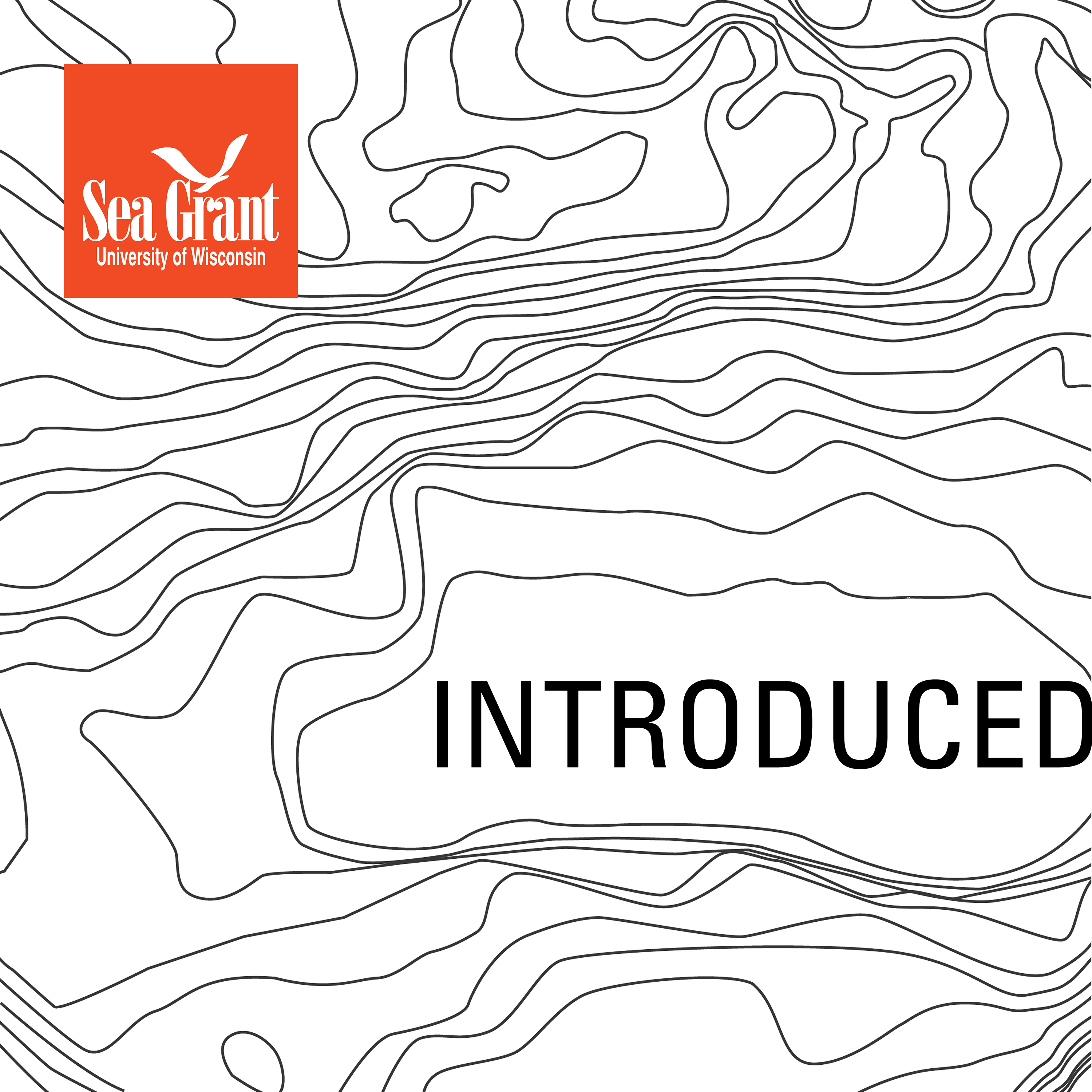 Introduced15. Faith and Wild RiceWild rice faces challenges like introduced species, pollution, habitat destruction and climate change. We learn how the Sokaogon Chippewa Community cares for this wonderfully resilient being. Opinions of our guests do not necessarily reflect the opinions of the Sokaogon Chippewa Community Mole Lake Band of Lake Superior Chippewa.Thanks to our guestsSarah Dance, (former) Wisconsin Sea GrantMelonee Montano, Great Lakes Indian Fish and Wildlife CommissionNathan Podany, Sokaogon Chippewa CommunityPeter McGeshick III, Sokaogon Chippewa CommunityRead moreRead More About Sarah Dance’s Rese...2021-04-2844 min
Introduced15. Faith and Wild RiceWild rice faces challenges like introduced species, pollution, habitat destruction and climate change. We learn how the Sokaogon Chippewa Community cares for this wonderfully resilient being. Opinions of our guests do not necessarily reflect the opinions of the Sokaogon Chippewa Community Mole Lake Band of Lake Superior Chippewa.Thanks to our guestsSarah Dance, (former) Wisconsin Sea GrantMelonee Montano, Great Lakes Indian Fish and Wildlife CommissionNathan Podany, Sokaogon Chippewa CommunityPeter McGeshick III, Sokaogon Chippewa CommunityRead moreRead More About Sarah Dance’s Rese...2021-04-2844 min Introduced12. A borrowed fishPacific salmon were introduced into the Great Lakes to control nuisance alewives. Now, alewives and salmon are both being challenged by a new wave of introduced species.Thanks to our guestsBarb Carey, WI Women Fish, Women Ice Angler ProjectBrad Eggold, Wisconsin Department of Natural ResourcesTitus Seilheimer, Wisconsin Sea GrantRead moreWI Women FishWomen Ice Angler ProjectRoot River Steelhead FacilityAutomated Marking & Tagging Trailer2021-03-3146 min
Introduced12. A borrowed fishPacific salmon were introduced into the Great Lakes to control nuisance alewives. Now, alewives and salmon are both being challenged by a new wave of introduced species.Thanks to our guestsBarb Carey, WI Women Fish, Women Ice Angler ProjectBrad Eggold, Wisconsin Department of Natural ResourcesTitus Seilheimer, Wisconsin Sea GrantRead moreWI Women FishWomen Ice Angler ProjectRoot River Steelhead FacilityAutomated Marking & Tagging Trailer2021-03-3146 min Introduced10. Peering through the smelt crystal ballSmelting became a beloved tradition after rainbow smelt were introduced into the Great Lakes. How did smelt get introduced, how do they fit into the food web and what happens when humans fall in love with a non-native species?Thanks to our guestsJared Myers, US Fish and Wildlife Service Carolyn Swartz, Angler’s All Titus Seilheimer, Wisconsin Sea Grant Sara Hudson, Ashland Parks and Recreation Read moreSmelt WrestlingNew Smelt Consumption Advisory for Lake SuperiorTrash Trunk: A Grab and Go Te...2021-03-1746 min
Introduced10. Peering through the smelt crystal ballSmelting became a beloved tradition after rainbow smelt were introduced into the Great Lakes. How did smelt get introduced, how do they fit into the food web and what happens when humans fall in love with a non-native species?Thanks to our guestsJared Myers, US Fish and Wildlife Service Carolyn Swartz, Angler’s All Titus Seilheimer, Wisconsin Sea Grant Sara Hudson, Ashland Parks and Recreation Read moreSmelt WrestlingNew Smelt Consumption Advisory for Lake SuperiorTrash Trunk: A Grab and Go Te...2021-03-1746 min IntroducedBONUS: The Claws Have the Sweetest MeatWe’re excited to share an episode of Teach Me About the Great Lakes featuring the Introduced team! This episode is all about invasive species generally, and invasive crayfish specifically. TMAGL speaks again with Dr. Brian Roth about his work on invasive crayfish and with IISG’s own Greg Hitzroth about the Invasive Crayfish Collaborative. Plus, in a special bonus, we speak with the hosts of Introduced, a highly produced, episodic podcast about invasive species from our colleagues at Wisconsin Sea Grant.Today’s guests are Dr. Brian Roth of Michigan State University, Greg Hitzroth of Illinois-Indiana Sea Gr...2021-03-031h 08
IntroducedBONUS: The Claws Have the Sweetest MeatWe’re excited to share an episode of Teach Me About the Great Lakes featuring the Introduced team! This episode is all about invasive species generally, and invasive crayfish specifically. TMAGL speaks again with Dr. Brian Roth about his work on invasive crayfish and with IISG’s own Greg Hitzroth about the Invasive Crayfish Collaborative. Plus, in a special bonus, we speak with the hosts of Introduced, a highly produced, episodic podcast about invasive species from our colleagues at Wisconsin Sea Grant.Today’s guests are Dr. Brian Roth of Michigan State University, Greg Hitzroth of Illinois-Indiana Sea Gr...2021-03-031h 08 Wisconsin Water NewsEpisode 30: PFAS in Green Bay and Lake Michigan – 1/8/21Sea Grant researcher Christina Remucal is looking into the fate of harmful PFAS chemicals in the water and sediments of Green Bay and Lake Michigan. She describes her preliminary results.
2021-01-0804 min
Wisconsin Water NewsEpisode 30: PFAS in Green Bay and Lake Michigan – 1/8/21Sea Grant researcher Christina Remucal is looking into the fate of harmful PFAS chemicals in the water and sediments of Green Bay and Lake Michigan. She describes her preliminary results.
2021-01-0804 min Wisconsin Water NewsEpisode 29: Trash Trunk Learning Treasure – 10/29/20This new learning kit focuses on trash found in waterways. Sea Grant educators Ginny Carlton and Anne Moser describe what’s in it, who can use it and how to request it.
2020-10-2905 min
Wisconsin Water NewsEpisode 29: Trash Trunk Learning Treasure – 10/29/20This new learning kit focuses on trash found in waterways. Sea Grant educators Ginny Carlton and Anne Moser describe what’s in it, who can use it and how to request it.
2020-10-2905 min Wisconsin Water NewsEpisode 28: Fight to Keep Milwaukee Pool – 8/19/20 The Friends of Lincoln Park successfully fought the closing of an aquatic center in their neighborhood on Milwaukee’s north side thanks to data from a mapping project by Sea Grant’s Deidre Peroff and Reflo.
2020-08-1907 min
Wisconsin Water NewsEpisode 28: Fight to Keep Milwaukee Pool – 8/19/20 The Friends of Lincoln Park successfully fought the closing of an aquatic center in their neighborhood on Milwaukee’s north side thanks to data from a mapping project by Sea Grant’s Deidre Peroff and Reflo.
2020-08-1907 min Introduced8: Crayfish crisisOn August 25, 2009, the Wisconsin Department of Natural Resources gets a call about small lobsters crawling around a neighborhood pond in Germantown. The extent of the problem is more than anyone bargained for. Here’s the story of the first red swamp crayfish introduced into Wisconsin.Special thanks to our guests:Tim Campbell, Wisconsin Sea GrantPete Jopke, Wisconsin Department of Natural ResourcesTim Zabel, initial sighterHeidi Bunk, Wisconsin Department of Natural ResourcesScott Van Egeren, Wisconsin Department of Natural ResourcesDoug and Mary, Esquire Estate...2020-07-2253 min
Introduced8: Crayfish crisisOn August 25, 2009, the Wisconsin Department of Natural Resources gets a call about small lobsters crawling around a neighborhood pond in Germantown. The extent of the problem is more than anyone bargained for. Here’s the story of the first red swamp crayfish introduced into Wisconsin.Special thanks to our guests:Tim Campbell, Wisconsin Sea GrantPete Jopke, Wisconsin Department of Natural ResourcesTim Zabel, initial sighterHeidi Bunk, Wisconsin Department of Natural ResourcesScott Van Egeren, Wisconsin Department of Natural ResourcesDoug and Mary, Esquire Estate...2020-07-2253 min Introduced6. FlippedBold plans to remove invasive species lead to some unintended consequences down the line. Special thanks to our co-host Tim Campbell, and our guests Dr. Dick Lathrop and Dr. Greg Sass. Read More:Water Clarity Responses to Carp Reduction in Shallow Eutrophic Lake WingraWithout the Carp, Lake Wingra Cleans UpWatch REU Student Ellen Heyn’s Movie Crystal Lake Mixing on YouTubeMixing Experiment Helps Remove Ninety Percent of Invasive Smelt From Crystal Lake Find Wisconsin Sea Grant in all of the following places: Wi...2020-07-0838 min
Introduced6. FlippedBold plans to remove invasive species lead to some unintended consequences down the line. Special thanks to our co-host Tim Campbell, and our guests Dr. Dick Lathrop and Dr. Greg Sass. Read More:Water Clarity Responses to Carp Reduction in Shallow Eutrophic Lake WingraWithout the Carp, Lake Wingra Cleans UpWatch REU Student Ellen Heyn’s Movie Crystal Lake Mixing on YouTubeMixing Experiment Helps Remove Ninety Percent of Invasive Smelt From Crystal Lake Find Wisconsin Sea Grant in all of the following places: Wi...2020-07-0838 min Introduced5. From revered to reviled (Invasive Carp part 2)How does a group of fish valued in their home range come to be some of America’s most reviled villains? Sydney and Bonnie explore a surprising collaboration between American and Chinese researchers, and see how Ontario is bracing for an Asian Carp introduction.Special thanks to our guests Duane Chapman, Dr. Yushun Chen, and Rebecca Schroeder.Flying Fish, Great Dish Video Featuring Duane ChapmanAsian Carp Recipes From Illinois-Indiana Sea GrantMore on the Modified Unified MethodIdentifying Bighead, Silver, Black, and Grass CarpUp-to-Date Information Abo...2020-06-2338 min
Introduced5. From revered to reviled (Invasive Carp part 2)How does a group of fish valued in their home range come to be some of America’s most reviled villains? Sydney and Bonnie explore a surprising collaboration between American and Chinese researchers, and see how Ontario is bracing for an Asian Carp introduction.Special thanks to our guests Duane Chapman, Dr. Yushun Chen, and Rebecca Schroeder.Flying Fish, Great Dish Video Featuring Duane ChapmanAsian Carp Recipes From Illinois-Indiana Sea GrantMore on the Modified Unified MethodIdentifying Bighead, Silver, Black, and Grass CarpUp-to-Date Information Abo...2020-06-2338 min Introduced4. The carp are coming (Invasive Carp part 1)Wisconsin Sea Grant takes a trip to the world’s largest electric fish dispersal barriers, just south of Chicago. These barriers are sending electricity into the canal for one purpose- to keep Asian Carp from swimming into the Great Lakes.EDIT: In this episode, we state that the dense and reproducing carp population is 20 miles downstream of the electric carp barriers. This is incorrect – the dense and reproducing Asian Carp population is located 100 miles downstream of the barriers in the Peoria and La Grange pools of the Illinois River.Special thanks to our guests Duane Chap...2020-06-1747 min
Introduced4. The carp are coming (Invasive Carp part 1)Wisconsin Sea Grant takes a trip to the world’s largest electric fish dispersal barriers, just south of Chicago. These barriers are sending electricity into the canal for one purpose- to keep Asian Carp from swimming into the Great Lakes.EDIT: In this episode, we state that the dense and reproducing carp population is 20 miles downstream of the electric carp barriers. This is incorrect – the dense and reproducing Asian Carp population is located 100 miles downstream of the barriers in the Peoria and La Grange pools of the Illinois River.Special thanks to our guests Duane Chap...2020-06-1747 min Introduced3. Bringing home the BeetlesWhen a showy, fuchsia plant runs amok in Wisconsin wetlands, researchers send a tiny beetle to the rescue. But the beetle isn’t native here, either. Identifying Purple Loosestrife Beetle Smorgasbord and other resources for teachers Raising your own beetles Special thanks to our guests Molly Bodde, Tim Campbell, Brock Woods and Jeanne Scherer. Find Wisconsin Sea Grant in all of the following places: Wisconsin Sea Grant: seagrant.wisc.edu Wisconsin Water Resources Institute: wri.wisc.edu Facebook Twitter 2020-06-1047 min
Introduced3. Bringing home the BeetlesWhen a showy, fuchsia plant runs amok in Wisconsin wetlands, researchers send a tiny beetle to the rescue. But the beetle isn’t native here, either. Identifying Purple Loosestrife Beetle Smorgasbord and other resources for teachers Raising your own beetles Special thanks to our guests Molly Bodde, Tim Campbell, Brock Woods and Jeanne Scherer. Find Wisconsin Sea Grant in all of the following places: Wisconsin Sea Grant: seagrant.wisc.edu Wisconsin Water Resources Institute: wri.wisc.edu Facebook Twitter 2020-06-1047 min Introduced2. The ones that live in your houseWhile on a field trip, a UW-Madison class discovers a feral goldfish in a local stream. Their find is only the beginning of Wisconsin’s pet problems. Special thanks to our guests Rob Mooney, Ben Martin, Dr. John Lyons, and Jamie Kozloski. Ben and Rob’s goldfish find: https://blog.limnology.wisc.edu/2019/04/23/students-solve-case-of-the-mystery-fish-on-uw-madison-fieldtrip/ Habitattitude: https://www.habitattitude.net/ Kingdom Animalia Exotic Animal Rescue: https://www.facebook.com/Kingdom-Animalia-Exotic-Animal-Rescue-348867648486080/ Find Wisconsin Sea Grant in all of the following places: Wisconsin Sea Grant: seagrant.wisc.edu Wisconsin W...2020-06-0345 min
Introduced2. The ones that live in your houseWhile on a field trip, a UW-Madison class discovers a feral goldfish in a local stream. Their find is only the beginning of Wisconsin’s pet problems. Special thanks to our guests Rob Mooney, Ben Martin, Dr. John Lyons, and Jamie Kozloski. Ben and Rob’s goldfish find: https://blog.limnology.wisc.edu/2019/04/23/students-solve-case-of-the-mystery-fish-on-uw-madison-fieldtrip/ Habitattitude: https://www.habitattitude.net/ Kingdom Animalia Exotic Animal Rescue: https://www.facebook.com/Kingdom-Animalia-Exotic-Animal-Rescue-348867648486080/ Find Wisconsin Sea Grant in all of the following places: Wisconsin Sea Grant: seagrant.wisc.edu Wisconsin W...2020-06-0345 min IntroducedIntroduced TrailerIntroduced, a new podcast from Wisconsin Sea Grant, is all about aquatic invaders and stories from our changing waters. Subscribe on iTunes, Spotify, or Google Play.2020-05-2101 min
IntroducedIntroduced TrailerIntroduced, a new podcast from Wisconsin Sea Grant, is all about aquatic invaders and stories from our changing waters. Subscribe on iTunes, Spotify, or Google Play.2020-05-2101 min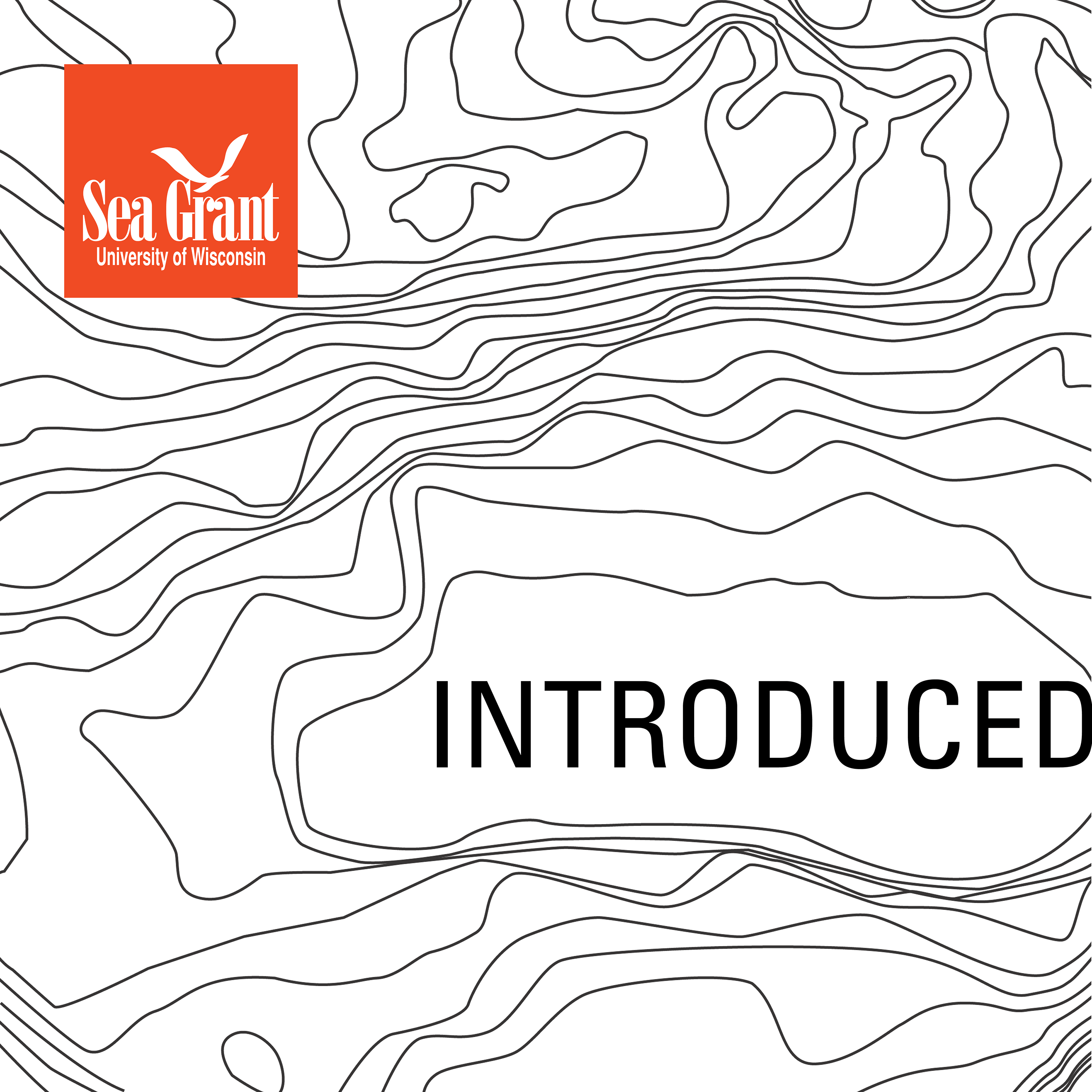 IntroducedIntroduced TrailerIntroduced, a new podcast from Wisconsin Sea Grant, is all about aquatic invaders and stories from our changing waters. Subscribe on iTunes, Spotify, or Google Play.2020-05-2100 min
IntroducedIntroduced TrailerIntroduced, a new podcast from Wisconsin Sea Grant, is all about aquatic invaders and stories from our changing waters. Subscribe on iTunes, Spotify, or Google Play.2020-05-2100 min Wisconsin Water NewsEpisode 25: Boatloads of Lumber, 5/8/20Caitlin Zant with the Wisconsin Historical Society describes how they are developing online educational resources about Lake Michigan shipwrecks, along with a field school for budding maritime archaeologists – all with funding from Wisconsin Sea Grant.
2020-05-1106 min
Wisconsin Water NewsEpisode 25: Boatloads of Lumber, 5/8/20Caitlin Zant with the Wisconsin Historical Society describes how they are developing online educational resources about Lake Michigan shipwrecks, along with a field school for budding maritime archaeologists – all with funding from Wisconsin Sea Grant.
2020-05-1106 min Wisconsin Water NewsEpisode 22: Pow Wow Educator Workshop, 2/7/20Educators from Wisconsin, Minnesota and Michigan learned more about Ojibwe culture, treaty rights and water ecology recently thanks to a Sea Grant-sponsored workshop.2020-02-1007 min
Wisconsin Water NewsEpisode 22: Pow Wow Educator Workshop, 2/7/20Educators from Wisconsin, Minnesota and Michigan learned more about Ojibwe culture, treaty rights and water ecology recently thanks to a Sea Grant-sponsored workshop.2020-02-1007 min Wisconsin Water NewsEpisode 21: AIS Boater Survey, 2/3/20Tim Campbell with Wisconsin Sea Grant describes results from a 2018 survey of boaters in Wisconsin regarding their knowledge of aquatic invasive species.2020-01-3106 min
Wisconsin Water NewsEpisode 21: AIS Boater Survey, 2/3/20Tim Campbell with Wisconsin Sea Grant describes results from a 2018 survey of boaters in Wisconsin regarding their knowledge of aquatic invasive species.2020-01-3106 min Wisconsin Water NewsEpisode 16: Lake Guardian Teacher Cruise 2019, 7/19/19Three Wisconsin teachers joined a dozen others from around the Great Lakes on a week-long research cruise on Lake Erie with scientists. Hear how the teachers built on knowledge they gained during a previous Sea Grant cruise and how their students will benefit from the teachers’ new insights into large lakes. Jody Henseler and Brian Henrickson are interviewed.2019-07-1808 min
Wisconsin Water NewsEpisode 16: Lake Guardian Teacher Cruise 2019, 7/19/19Three Wisconsin teachers joined a dozen others from around the Great Lakes on a week-long research cruise on Lake Erie with scientists. Hear how the teachers built on knowledge they gained during a previous Sea Grant cruise and how their students will benefit from the teachers’ new insights into large lakes. Jody Henseler and Brian Henrickson are interviewed.2019-07-1808 min Wisconsin Water NewsEpisode 13: Clean water and more, 5/16/19Greg Kleinheinz is in the middle of a Wisconsin Sea Grant project to assess effectiveness of beach redesigns along Lake Michigan. He’s finding that fixing beaches benefits both the environment and economy.2019-05-1606 min
Wisconsin Water NewsEpisode 13: Clean water and more, 5/16/19Greg Kleinheinz is in the middle of a Wisconsin Sea Grant project to assess effectiveness of beach redesigns along Lake Michigan. He’s finding that fixing beaches benefits both the environment and economy.2019-05-1606 min Wisconsin Water NewsEpisode 11: Meteotsunami-Generated Rip CurrentsConditions from a July 4, 2003, storm that caused seven drownings on Lake Michigan came under scrutiny by Wisconsin Sea Grant scientists who are studying a storm-induced wave called a meteotsunami -- a contraction of the term meteorological tsunami, which means a wave caused by weather. Chin Wu, Eric Anderson, Robert Duksherer and Megan Dodson are interviewed.2019-04-0109 min
Wisconsin Water NewsEpisode 11: Meteotsunami-Generated Rip CurrentsConditions from a July 4, 2003, storm that caused seven drownings on Lake Michigan came under scrutiny by Wisconsin Sea Grant scientists who are studying a storm-induced wave called a meteotsunami -- a contraction of the term meteorological tsunami, which means a wave caused by weather. Chin Wu, Eric Anderson, Robert Duksherer and Megan Dodson are interviewed.2019-04-0109 min Wisconsin Water NewsEpisode 8: College Course Uses Lake Superior Watershed as a Climate Change ExampleStudents from the University of Wisconsin-Stevens Point received a personal look at current and future impacts of climate change through a new field class the college offered and Wisconsin Sea Grant sponsored. They met with Matt Dahlman of The Nature Conservancy at Caroline Lake Preserve near Mellen, Wisconsin. Then they tromped through the woods for a climate change game with Steven Handler of the U.S. Forest Service. Afterward, they traveled to Odanah to meet with Great Lakes Indian Fish and Wildlife Commission staff. Find out what they learned during their adventures!2018-10-2307 min
Wisconsin Water NewsEpisode 8: College Course Uses Lake Superior Watershed as a Climate Change ExampleStudents from the University of Wisconsin-Stevens Point received a personal look at current and future impacts of climate change through a new field class the college offered and Wisconsin Sea Grant sponsored. They met with Matt Dahlman of The Nature Conservancy at Caroline Lake Preserve near Mellen, Wisconsin. Then they tromped through the woods for a climate change game with Steven Handler of the U.S. Forest Service. Afterward, they traveled to Odanah to meet with Great Lakes Indian Fish and Wildlife Commission staff. Find out what they learned during their adventures!2018-10-2307 min Wisconsin Water NewsEpisode 7: Milwaukee River Race Proceeds SwimminglyIn the first swim held in the Milwaukee River in potentially 100 years, 68 people entered the water for a mile-and-a-half race. All but one finished, and nobody got sick. Hear the details from Kirsten Shead with the Milwaukee Water Commons and Deidre Peroff with Wisconsin Sea Grant.2018-09-0405 min
Wisconsin Water NewsEpisode 7: Milwaukee River Race Proceeds SwimminglyIn the first swim held in the Milwaukee River in potentially 100 years, 68 people entered the water for a mile-and-a-half race. All but one finished, and nobody got sick. Hear the details from Kirsten Shead with the Milwaukee Water Commons and Deidre Peroff with Wisconsin Sea Grant.2018-09-0405 min Wisconsin Water NewsEpisode 6: Wisconsin Clean Marina Program Granted a Boatload of MoneyA three-year grant of $200,000 will help Wisconsin’s Clean Marina Program last into the future and will encourage more boat marinas to reduce any negative impacts from their operations in Lake Michigan. In this episode, Wisconsin Sea Grant’s Julia Noordyk and the Wisconsin Marine Association’s Michelle Shrider describe what the grant means to the program. Vicki Elkin with the Fund for Lake Michigan explains why her program was willing to provide funds for this important work.2018-08-2706 min
Wisconsin Water NewsEpisode 6: Wisconsin Clean Marina Program Granted a Boatload of MoneyA three-year grant of $200,000 will help Wisconsin’s Clean Marina Program last into the future and will encourage more boat marinas to reduce any negative impacts from their operations in Lake Michigan. In this episode, Wisconsin Sea Grant’s Julia Noordyk and the Wisconsin Marine Association’s Michelle Shrider describe what the grant means to the program. Vicki Elkin with the Fund for Lake Michigan explains why her program was willing to provide funds for this important work.2018-08-2706 min Wisconsin Water NewsEpisode 4: Wild Rice is Focus of a Grant for Outreach Efforts in Lake Superior StatesSea Grant Programs in Wisconsin, Michigan and Minnesota will receive federal funds to create a Manoomin (wild rice) toolkit. Leading the effort in Wisconsin will be Deidre Peroff, Wisconsin Sea Grant’s social scientist. Hear what Native American elders have to say about what wild rice means to them.2018-06-1904 min
Wisconsin Water NewsEpisode 4: Wild Rice is Focus of a Grant for Outreach Efforts in Lake Superior StatesSea Grant Programs in Wisconsin, Michigan and Minnesota will receive federal funds to create a Manoomin (wild rice) toolkit. Leading the effort in Wisconsin will be Deidre Peroff, Wisconsin Sea Grant’s social scientist. Hear what Native American elders have to say about what wild rice means to them.2018-06-1904 min Wisconsin Water NewsEpisode 3: Sea Grant Helps City Clean Up its Zoning Code “Monster”The city of Superior is beginning a process, led by Wisconsin Sea Grant’s Julia Noordyk, to review and update city codes and ordinances to reduce stormwater pollution. Hear what Superior Mayor Jim Paine thinks about this effort to make his community more sustainable.2018-05-1705 min
Wisconsin Water NewsEpisode 3: Sea Grant Helps City Clean Up its Zoning Code “Monster”The city of Superior is beginning a process, led by Wisconsin Sea Grant’s Julia Noordyk, to review and update city codes and ordinances to reduce stormwater pollution. Hear what Superior Mayor Jim Paine thinks about this effort to make his community more sustainable.2018-05-1705 min Aquifers and WatershedsPhosphorus, Outreach and the Fox-Wolf WatershedThe secrets of the phosphorus cycle are revealed in this episode, as well as the challenges of trying to relay the science about this unusual nutrient cycle to stakeholders impacted by phosphorus loading. Sea Grant outreach specialist Julia Noordyk is featured, sharing her experiences in spreading knowledge about caring for water resources to the inhabitants of the watersheds feeding Green Bay.2014-05-1924 min
Aquifers and WatershedsPhosphorus, Outreach and the Fox-Wolf WatershedThe secrets of the phosphorus cycle are revealed in this episode, as well as the challenges of trying to relay the science about this unusual nutrient cycle to stakeholders impacted by phosphorus loading. Sea Grant outreach specialist Julia Noordyk is featured, sharing her experiences in spreading knowledge about caring for water resources to the inhabitants of the watersheds feeding Green Bay.2014-05-1924 min Aquifers and WatershedsStreams, Snails and Invasive SpeciesIn this episode, Chris heads out to Black Earth Creek to meet Tim Campbell, an aquatic invasive species expert who works for the University of Wisconsin Sea Grant. In between dodging traffic and wildlife, they share a candid conversation on invasive species, on specific organisms affecting Wisconsin and on how to think about the proliferation of unwanted flora and fauna in general. Tim explains the challenges of conducting effective public outreach on such invasives, as well as the role that watersheds play in the spread of undesirable species.2014-03-0619 min
Aquifers and WatershedsStreams, Snails and Invasive SpeciesIn this episode, Chris heads out to Black Earth Creek to meet Tim Campbell, an aquatic invasive species expert who works for the University of Wisconsin Sea Grant. In between dodging traffic and wildlife, they share a candid conversation on invasive species, on specific organisms affecting Wisconsin and on how to think about the proliferation of unwanted flora and fauna in general. Tim explains the challenges of conducting effective public outreach on such invasives, as well as the role that watersheds play in the spread of undesirable species.2014-03-0619 min UW Sea Grant in the NewsSturgeon Spearing: A Wisconsin TraditionUW Sea Grant Education Outreach Specialist Kathleen Schmitt Kline discusses the Wisconsin tradition of sturgeon spearing with Wisconsin Public Radio.2014-02-0712 min
UW Sea Grant in the NewsSturgeon Spearing: A Wisconsin TraditionUW Sea Grant Education Outreach Specialist Kathleen Schmitt Kline discusses the Wisconsin tradition of sturgeon spearing with Wisconsin Public Radio.2014-02-0712 min Sea Grant and Lake MichiganSinging Sands and the Sturgeon BowlIn this final podcast Chris and Doggus head once more for the shores of Lake Michigan. Things don’t quite turn out as planned – but before they get home, you will hear the famous singing sands of Lake Michigan from a very unusual perspective, and also find out how Sea Grant is sowing the seeds for future science. Sea Grant helps support the Lake Sturgeon Bowl, a regional academic competition sponsored by the National Ocean Sciences Bowl. Liz Sutton, a regional coordinator for the Sturgeon Bowl, is interviewed by Chris during an actual competition, and she explains how the Sturgeon Bowl...2013-09-0615 min
Sea Grant and Lake MichiganSinging Sands and the Sturgeon BowlIn this final podcast Chris and Doggus head once more for the shores of Lake Michigan. Things don’t quite turn out as planned – but before they get home, you will hear the famous singing sands of Lake Michigan from a very unusual perspective, and also find out how Sea Grant is sowing the seeds for future science. Sea Grant helps support the Lake Sturgeon Bowl, a regional academic competition sponsored by the National Ocean Sciences Bowl. Liz Sutton, a regional coordinator for the Sturgeon Bowl, is interviewed by Chris during an actual competition, and she explains how the Sturgeon Bowl...2013-09-0615 min Sea Grant and Lake MichiganReefs and Quarries, Streams and FishChris wraps up his interviews at the University of Wisconsin-Milwaukee's School of Freshwater Sciences in this episode, where he speaks at length with Dr. John Janssen. Along with sharing insights from his Sea Grant-sponsored work with lake trout and yellow perch, Janssen relates this research to a bigger picture about how Lake Michigan functions (“like a brewery”, according to Janssen) and how people perceive lakes and water in general. Janssen also explains the presence of reefs and quarries in and around the lake, and offers a simple solution to improve the water quality of Lake Michigan.2013-08-1621 min
Sea Grant and Lake MichiganReefs and Quarries, Streams and FishChris wraps up his interviews at the University of Wisconsin-Milwaukee's School of Freshwater Sciences in this episode, where he speaks at length with Dr. John Janssen. Along with sharing insights from his Sea Grant-sponsored work with lake trout and yellow perch, Janssen relates this research to a bigger picture about how Lake Michigan functions (“like a brewery”, according to Janssen) and how people perceive lakes and water in general. Janssen also explains the presence of reefs and quarries in and around the lake, and offers a simple solution to improve the water quality of Lake Michigan.2013-08-1621 min Sea Grant and Lake MichiganJobs for Dogs and Environmental Social ScienceIn this episode, Chris and Doggus head to the University of Wisconsin-Milwaukee's School of Freshwater Sciences. Interesting things unfold outside, which call to mind unusual opportunities of employment for dogs, as well as some common sense things about feeding birds and owning dogs. Jane Harrison, an environmental social scientist working for Sea Grant, joins them for a walk and a chat about her work before Chris heads inside.2013-08-1213 min
Sea Grant and Lake MichiganJobs for Dogs and Environmental Social ScienceIn this episode, Chris and Doggus head to the University of Wisconsin-Milwaukee's School of Freshwater Sciences. Interesting things unfold outside, which call to mind unusual opportunities of employment for dogs, as well as some common sense things about feeding birds and owning dogs. Jane Harrison, an environmental social scientist working for Sea Grant, joins them for a walk and a chat about her work before Chris heads inside.2013-08-1213 min Sea Grant and Lake MichiganMaps and AppsIn this podcast, Chris heads to Potawatomi State Park on Green Bay. He finds out from UW-Madison graduate student Francis Eanes about a new iPhone application that Sea Grant is helping to develop, and how these kinds of neo-geography apps will completely reinvent how people can use and interact with mapping technology.2013-06-2818 min
Sea Grant and Lake MichiganMaps and AppsIn this podcast, Chris heads to Potawatomi State Park on Green Bay. He finds out from UW-Madison graduate student Francis Eanes about a new iPhone application that Sea Grant is helping to develop, and how these kinds of neo-geography apps will completely reinvent how people can use and interact with mapping technology.2013-06-2818 min Sea Grant and Lake MichiganOutreach, Islands and WaterfowlIn this episode, Chris heads to the Green Bay Wildlife Sanctuary to speak with UW Sea Grant Water Quality Specialist Vicky Harris. Vicky explains what outreach specialists like herself do and describes some of the many projects around Green Bay that she has worked on, and how they have helped the many communities around this part of Lake Michigan. Hear how Sea Grant has contributed to the return of both islands and waterfowl in the area as Chris and Vicky take a stroll through the sanctuary.2013-06-2810 min
Sea Grant and Lake MichiganOutreach, Islands and WaterfowlIn this episode, Chris heads to the Green Bay Wildlife Sanctuary to speak with UW Sea Grant Water Quality Specialist Vicky Harris. Vicky explains what outreach specialists like herself do and describes some of the many projects around Green Bay that she has worked on, and how they have helped the many communities around this part of Lake Michigan. Hear how Sea Grant has contributed to the return of both islands and waterfowl in the area as Chris and Vicky take a stroll through the sanctuary.2013-06-2810 min Sea Grant and Lake MichiganAn Inconceivable Commerce and the Nearshore ShuntUW Sea Grant audio specialist Chris Bocast starts off on a podcast road trip to visit Lake Michigan, and to discover the various research and outreach projects that UW Sea Grant supports.
First stop is Whitefish Dunes State Park: on the way to the beach, a stroll through the reconstruction of a pre-settlement Indian encampment brings to mind aspects of the lake’s history, while the shore itself stirs thoughts about the challenges and changes facing Lake Michigan, which are detailed in a chat with UW Sea Grant director Jim Hurley.2013-06-1717 min
Sea Grant and Lake MichiganAn Inconceivable Commerce and the Nearshore ShuntUW Sea Grant audio specialist Chris Bocast starts off on a podcast road trip to visit Lake Michigan, and to discover the various research and outreach projects that UW Sea Grant supports.
First stop is Whitefish Dunes State Park: on the way to the beach, a stroll through the reconstruction of a pre-settlement Indian encampment brings to mind aspects of the lake’s history, while the shore itself stirs thoughts about the challenges and changes facing Lake Michigan, which are detailed in a chat with UW Sea Grant director Jim Hurley.2013-06-1717 min UW Sea Grant in the NewsJohn Karl on WUWMUW Sea Grant's John Karl talks with WUWM about shipwrecks around the shorelines of Wisconsin and the dangers of navigating these ships in the 19th century.2012-12-1403 min
UW Sea Grant in the NewsJohn Karl on WUWMUW Sea Grant's John Karl talks with WUWM about shipwrecks around the shorelines of Wisconsin and the dangers of navigating these ships in the 19th century.2012-12-1403 min UW Sea Grant in the NewsJim Hurley on WFAWMichael Clish, the host of WFAW 940 AM’s “Morning Magazine” in Fort Atkinson chats with UW Sea Grant director Jim Hurley about what Sea Grant does and why its mission to fund Great Lakes-based research is so important.2012-11-2919 min
UW Sea Grant in the NewsJim Hurley on WFAWMichael Clish, the host of WFAW 940 AM’s “Morning Magazine” in Fort Atkinson chats with UW Sea Grant director Jim Hurley about what Sea Grant does and why its mission to fund Great Lakes-based research is so important.2012-11-2919 min Aquaculture and YouA Visit To Bell AquacultureTake an audio tour of Bell Aquaculture in Indiana, where the aquaculture of the future is being accomplished today. President Norman McCowan describes in detail the operations of this large-scale, vertically-integrated aquaculture farm and processing facility, where the long-term research of UW's Sea Grant has combined with private initiative to provide good jobs and a sustainable food resource for the Indiana economy.2012-08-2114 min
Aquaculture and YouA Visit To Bell AquacultureTake an audio tour of Bell Aquaculture in Indiana, where the aquaculture of the future is being accomplished today. President Norman McCowan describes in detail the operations of this large-scale, vertically-integrated aquaculture farm and processing facility, where the long-term research of UW's Sea Grant has combined with private initiative to provide good jobs and a sustainable food resource for the Indiana economy.2012-08-2114 min Aquaculture and YouThe Blue RevolutionThis episode picks up in the 1950s and 1960s, when new technologies made the practice of fish farming much more practical. The podcast explains the launching of the "Blue Revolution" that was intended to do for fish farming what the "Green Revolution" had done for agriculture. The key technological developments are explained, the the first attempts at a second major wave of international aquaculture are chronicled, in particular the founding of Sea Grant.2012-05-2816 min
Aquaculture and YouThe Blue RevolutionThis episode picks up in the 1950s and 1960s, when new technologies made the practice of fish farming much more practical. The podcast explains the launching of the "Blue Revolution" that was intended to do for fish farming what the "Green Revolution" had done for agriculture. The key technological developments are explained, the the first attempts at a second major wave of international aquaculture are chronicled, in particular the founding of Sea Grant.2012-05-2816 min People of the SturgeonThe Secrets of Sturgeon - This playlist consists of clips for the audiobook version of People of the Sturgeon: Wisconsin's love affair with an ancient fish. Clip 1UW Sea Grant aquaculture specialist Fred Binkowski takes to the air, using radiotelemetry to track the movements and location of tagged sturgeon as part of a 25-year rehabilitation and restocking project.2011-09-0801 min
People of the SturgeonThe Secrets of Sturgeon - This playlist consists of clips for the audiobook version of People of the Sturgeon: Wisconsin's love affair with an ancient fish. Clip 1UW Sea Grant aquaculture specialist Fred Binkowski takes to the air, using radiotelemetry to track the movements and location of tagged sturgeon as part of a 25-year rehabilitation and restocking project.2011-09-0801 min People of the SturgeonChapter 7 Clip 1UW Sea Grant aquaculture specialist Fred Binkowski takes to the air, using radiotelemetry to track the movements and location of tagged sturgeon as part of a 25-year rehabilitation and restocking project.2011-09-0801 min
People of the SturgeonChapter 7 Clip 1UW Sea Grant aquaculture specialist Fred Binkowski takes to the air, using radiotelemetry to track the movements and location of tagged sturgeon as part of a 25-year rehabilitation and restocking project.2011-09-0801 min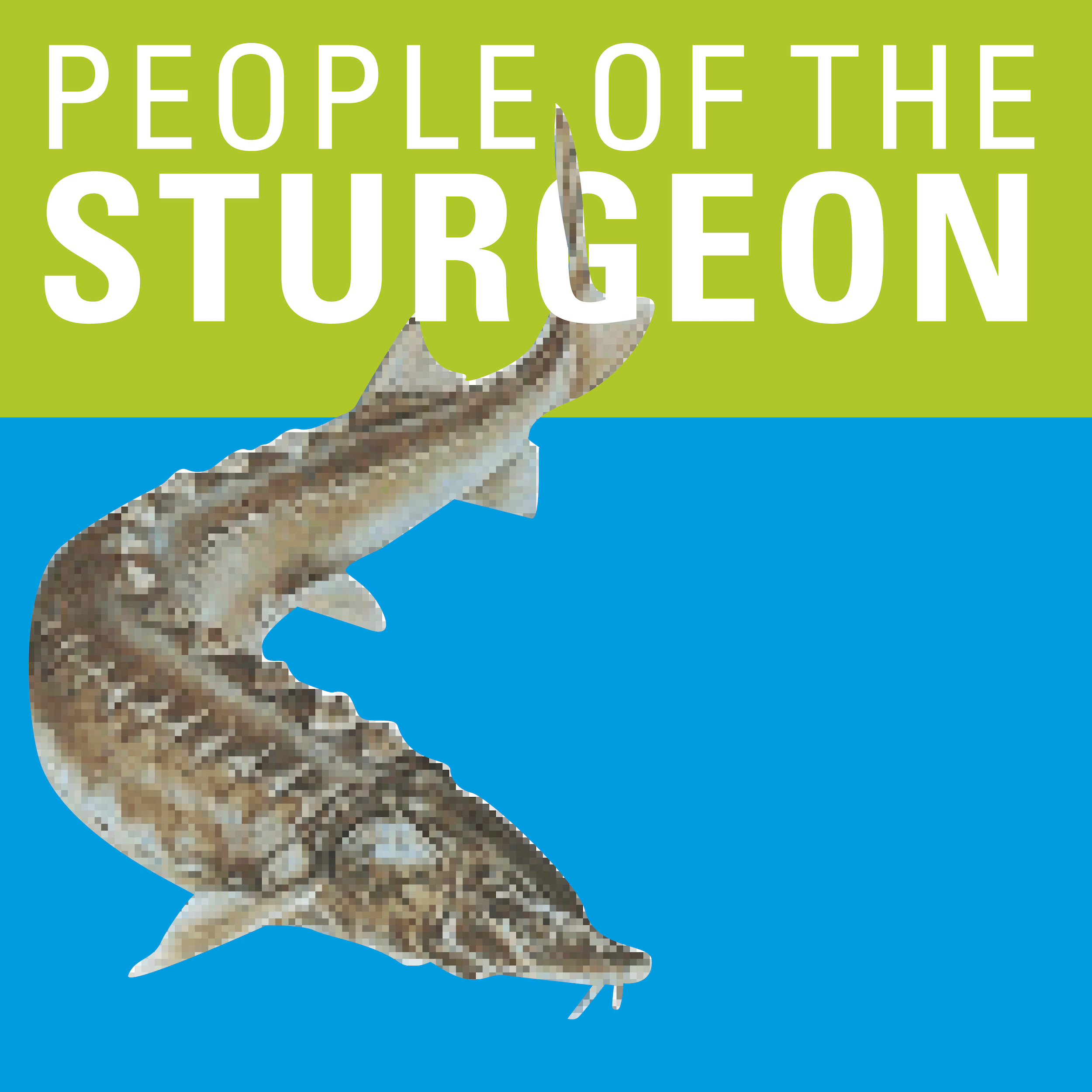 People of the SturgeonThe Secrets of Sturgeon - This playlist consists of clips for the audiobook version of People of the Sturgeon: Wisconsin's love affair with an ancient fish. Clip 1UW Sea Grant aquaculture specialist Fred Binkowski takes to the air, using radiotelemetry to track the movements and location of tagged sturgeon as part of a 25-year rehabilitation and restocking project.2011-09-0800 min
People of the SturgeonThe Secrets of Sturgeon - This playlist consists of clips for the audiobook version of People of the Sturgeon: Wisconsin's love affair with an ancient fish. Clip 1UW Sea Grant aquaculture specialist Fred Binkowski takes to the air, using radiotelemetry to track the movements and location of tagged sturgeon as part of a 25-year rehabilitation and restocking project.2011-09-0800 min